Kristen Lamb's Blog, page 2
September 13, 2024
Wounds & Characters: The Damaged REBORN!

Wounds matter in life and in fiction. We’ve all been hurt in some way and to some degree. Just goes with being human.
Admitting weakness, failure, mistakes, and flaws isn’t always easy. In fact, it can be downright terrifying for even the ‘strongest’ of us. It’s an especially daunting task in a world that idolizes something none of us will ever be…perfect.
Wounds are part of the human experience. When we understand the nature of wounds, our fiction becomes all the richer just by adding in these layers.
All genres and all stories require wounds. No wound and no story. Even The Little Engine That Could had self-esteem issues and a confidence problem  .
.
Wounds provide friction vital for conflict. No conflict, no story. Conflict turns pages, sells books, and cultivates fans. Remember, last time, we discussed how the market is BEYOND GLUTTED with BAD STORIES? How can we possibly stand out in against millions of titles, when even the ROBOTS are competing?
No one wants literary meatloaf. Boring=DEATHOne tried and true way to stand apart is the ‘No, duh.’ Tell AMAZING stories. We MUST come up higher. Again, no one wants literary meatloaf. This said, one of the BIGGEST weaknesses I see as an editor is writers holding back. You cannot afford to be meh. Definitely not in fiction. Wounds are THE best way to sell a story and cultivate an audience, especially these days.
Which is fine, because we are all feeling a bit damaged lately—writers & readers—so it is wonderful to escape in a story where a) the characters are wounded, too b) we can relate and maybe work through our demons and drama and c) there is resolution (and maybe even a happily-ever after!).
The entire point of stories is a flawed character overcoming some internal issue (damage) in order to triumph over an external problem. It’s why readers read fiction.
Undamaged characters aren’t simply boring, but the audience won’t be able to relate with them. How can we empathize with someone who lacks a past? Who’s never made a mistake, has no regrets, or has lived a charmed and problem-free life?
Short answer? We can’t.In fact, the more messed up a person (or character) is, often the more interesting they become. Give them a shameful past, enough secrets to stress out Homeland Security, and more skeletons in the closet then a royal family. Audiences LIKE messed up people because they are a) the same but different (usually) b) they are unpredictable c) they inject excitement/drama into the everyday.
Remember Fight Club? When we meet the narrator and MC, he is dull as dirt…until MARLA. Who makes TYLER DURDEN emerge. So even if your character is a Safe Susan or Dull Dave, toss a lunatic character (and their peaceful, quite lives) into a blender then hit HIGH and watch the FUN.
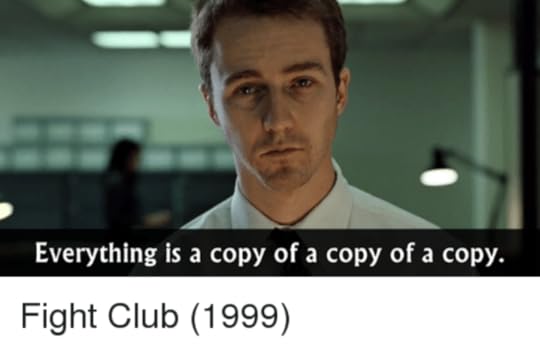
Suffice to say that, today we will talk some about craft, and next time I have some completely new content regarding how to build your platform, identify your readers then connect with them and build a thriving fan base. It is a topic I have kept solely for classes and conferences, so should be fun.
Moving on!
Wounds: Genre Dictates Damage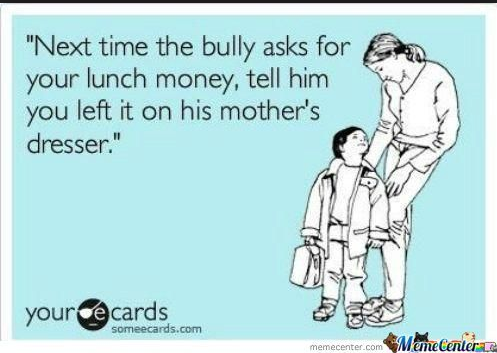
All this said, the wounds we (writers) create need to fit the genre because genre acts as a guideline for reader expectations. Our goal as authors should be to meet then exceed reader expectations.
Stories are all for the reader or should be, which is why genre constraints can be very helpful for writers.
No one expects a cozy cupcake mystery to explore the nature of evil. Readers who gravitate to this genre are wanting a lighter read and will resent us playing Dostoyevsky.
Conversely, if a reader is in the mood for a story that probes the depths of the human condition, they’re probably not picking up a novel about a cupcake baker who solves local crimes.
Many emerging writers often shy away from damaged characters and use genre as an excuse to avoid the uncomfortable. Big mistake.
A cozy cupcake mystery can give the reader the light entertainment she craves and also offer emotional resonance she needs…without being Crime, Punishment and Cupcakes (though that’s a killer title, LOL).
When we understand wounds better, it helps us cultivate layered characters who’ll make for page-turning stories, regardless of genre. Let’s look at some common sources for wounds.
Pain of Perfect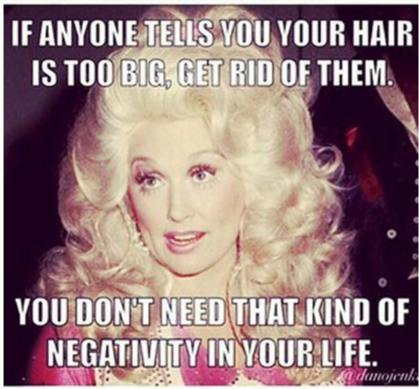
First, what is perfect? Good question. Humans all across time and in every culture idolize perfect (always have and always will) though what perfect is varies vastly and changes all the time.
Just take a moment to google female beauty standards across the ages and it’s easy to see how, while the world around us might change, people don’t.
We are still ridiculous.
The ancient Incas thought being cross-eyed was super sexy. RAWR. They often fitted infants with a plank between their eyes to artificially create this ‘natural’ beauty for those unlucky enough to be born with ‘normal’ eyes. Ancient Greece was hot for the unibrow.
From ideal body type to what constitutes success to what constitutes normal or abnormal is in constant flux, and is different everywhere. It even varies from household to household depending on culture, and you got it…wounds.
This is where writers can have a lot of fun creating mayhem in fiction.
Wounds: Pain of Falling Short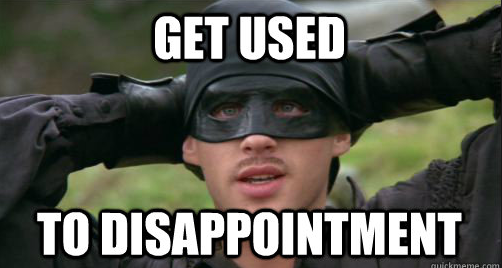
No matter what genre we write, a character failing to ‘live up to’ some ideal is gold.
Maybe your character has spent a lifetime being measured against the ‘perfect’ older sibling, and struggles with self-esteem. This character might flounder trying to create his/her own distinct identity.
Or flip it.
What if the character happens to be the ‘perfect’ older sibling? This character didn’t ask for family or outsiders to pick on his or her younger sibling for not being as smart, talented, pretty, ambitious, etc.
This character never asked to be the standard unit of measurement to judge another human being. How much guilt might come with that? Think of the pressure or even the fear of being exposed as a ‘fraud’?
Also, we have another ‘person’ who lacks a distinctive identity. While we have two very different ‘people’ both characters are defined in relation to the other.
Outsiders have denied agency to both.��It’s amazing how something as simple as birth order can create a wound that drives characters and their decisions (good and bad). And notice how this works no matter the genre. From pulp science fiction to an epic Joe Abercrombie A Little Hatred high fantasy (mixed with a smidge of steampunk), this formula WORKS.
Retell an old story using just this framework as a mental exercise, and you’ll see what I mean.How does Little Red Riding Hood change if she has an older sister who usually does the deliveries to Grandma? What if the Three Little Pigs are actually embroiled in a desperate war of sibling rivalry? Who are they building the houses to impress? How would Sleeping Beauty feel from the POV of the illegitimate and (TRUE) first daughter of the king, condemned to always be in the shadow of the beautiful, cursed little sister?
Just LOOK at how fun these old worn out stories become with a fresh new spin! Take all those battered, broken parts the world likes to throw away and refashion them into something powerful.
We see this sort of sibling wound explored in everything from��The Joy Luck Club��(literary fiction) to��Game of Thrones��(epic high fantasy) to one out of every three Hallmark movies  .
.

Since we’ve all managed to survive a pandemic, many of us recall what it was like to be trapped in close quarters with loved ones. How we might have even become more hyperaware of old wounds that hadn’t healed at all or had healed improperly.
BOOM!
We touched a bit on family damage a moment ago in regards to ‘perfection.’ Family damage can come in many forms.
Joe Hill’s Heart-Shaped Box does a brilliant job of exploring the ‘anti-goal’ which is a common fruit of the diseased family tree.
Judas Coyne is a famous rockstar, wealthy beyond imagination who has everything (including a lot of emotional baggage). Hate, anger and resentment fueled his incredible success, yet false guilt and profound shame keep him from enjoying any of it. A vengeful ghost determined to destroy him body and soul might be the only thing with the power to liberate Coyne from his emotional bondage.
Sometimes the diseased family tree is not as obvious. Often, parents believe they’re giving their children the best, but are actually deluded about the nature of their motives….
Rich Girl ProblemsIn The Luckiest Girl Alive, TifAni’s mom is superficial, materialistic, and self-absorbed. Her father is an emotionally absentee ghost who resents his life. Her mother pushes for TifAni to attend an elite prep school to give her daughter all the opportunities she missed (code for ‘marry real money’). Dad doesn’t have the spine to stand up and say ‘no.’
Both parents are too self-centered to realize TifAni in that school is a ticking bomb.
Of course, not every character needs to grow up in Season Ten of The Jerry Springer Show in order to take on some damage. The road to therapy is paved with good intentions.
Parents are human, too.
What Alice Forgot by Liane Moriarty explores how the best of intentions can poison everything.
Life Wounds All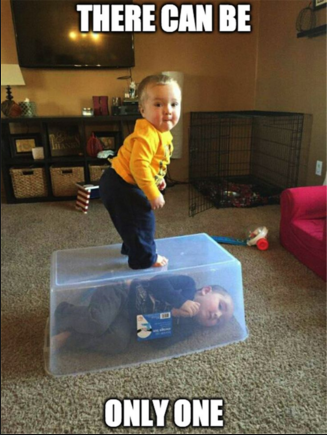
Life has 100% fatality rate. No one gets out alive. Also we’re all going to get hurt somewhere by someone (and hurt others, too). Thing is, life is all…pointy.
If family doesn’t make us bleed, then school, peers, romantic interests, work colleagues, social media, well-meaning editors, book reviews, or plain bad luck will.
I know. I missed my calling writing inspirational cards  .
.
Why am I talking about all this? Because of what we JUST talked about. Writers have more ‘competition’ than any other time in human history. With no gatekeepers, discoverability is a nightmare. There are a gazillion choices for books and most of them (like cable channels) are a waste of what little free time we have.
More is Not Always BetterFrom movies to television to books, audiences are deluged with tired tropes, boringly predictable plots and characters with the emotional depth of a goldfish. We can see this ‘glut of meh’ as a problem or use it for our advantage.
If we know why readers read, what they want, then we can work hard on what matters.
Readers long for emotional connection and stories that help them deal with pain, ease their pain or maybe even solve/release their pain. They want hope that messed up people overcome big problems in spite of, or perhaps because of, wounds and flaws.
Audiences yearn to believe that, on the other side of their problems, there is joy, peace, true love, freedom, fulfillment, healing, understanding, wholeness!
Wounds are healed and victory sealed. Who doesn’t want more of THAT?
 What Are Your Thoughts?
What Are Your Thoughts?Getting tired of the same old same old? From Hollywood to books it feels like it’s just the same stuff over and over. I get giddy when I discover something truly excellent. Some of my best therapy and a-ha moments have come from fiction.
What about you?
I love hearing from you!
What are your thoughts? We need to write the stories that change the world because, if one looks back? That’s what writers do. The world is ailing and our stories provide the medicine, if not the cure.
Global politics, the economy, work, one crisis after another! The world needs an escape. WE NEED AN ESCAPE. So can you think of ways to put that imagination to use in ways that will help those Normies out there cracking up?
What are some ways that you can reimagine wounds? Have you had to narrow of a definition? Are there some ways you can think of to delve deeper than the surface? Who are some of your favorite wounded characters from the page and/or the screen?
The post Wounds & Characters: The Damaged REBORN! appeared first on Kristen Lamb.
September 6, 2024
Help! I Think I am Having a Mid-Write Crisis!
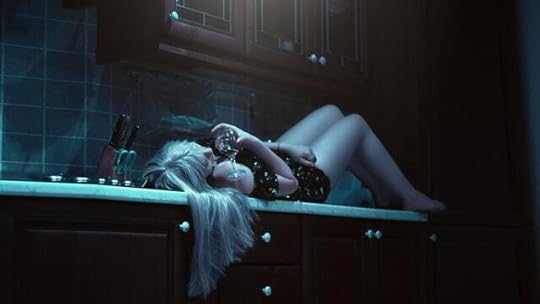
Crisis. Oh us writers and how we know that world so well. I know many of you have been following this blog for quite a few years and THANK YOU. Lord knows we have navigated a crisis…or fifty. In fact, I took a break from blogging this summer to deal with family crises because kids grow up, parents age and entropy is REAL and happily destroying my clean kitchen as I type this.
What I want to address today is I GET IT. There is a lot coming down the pipeline that can feel very overwhelming. Every breakthrough, sadly, comes tethered to a crisis. It is all a matter of perspective.
The automobile was an incredible invention…unless you happened to be the dude who’d finally inherited his family’s horse buggy empire. Automated manufacturing raised the overall quality of life for millions of people while simultaneously rendering many artisans unemployed relics.
Thing is, we can’t have the sweet without the bitter. That is something that never has changed and never will.
Publishing is highly unique in that is managed to remain relatively unchanged for a really, really long time. These days? An industry that hadn’t changed since the Great Runaway Fish Wagon of 1896 now changes more than a bipolar contestant on RuPaul’s Drag Race.
What is a writer to do?
The Mid-Write Crisis
Right now, I know a lot of authors feel ground down and worn out. I know, I have been feeling it. Widgets and whats-its and apps and audio and video and podcasts and now AI? ROBOTS are now writing frigging books?
AHHHH!
But then I sat down, put away the vodka and cookie dough, and thought this through.
This is nothing new. Writers have always been in a push and pull with market forces, distribution, and the whims of readers. Pulp fiction was a massively popular way to make a living writing until WWII and paper rationing.
DOH!
Then, to overcompensate for the curtailed paper supply, publishers started condensing all the paper into novels long enough to bludgeon the entire Clan of the Cave Bear. I know I am dating myself here, but remember going to a bookstore and deliberately buying a book thick enough to use as a weapon so your dollar stretched as far as possible?
So, the super thick books became all the rage. This was where we saw an explosion in richly verbose books from authors like Michael Crichton (Jurassic Park), Stephen King (It), James Clavell (Shogun), Larry McMurtry (Lonesome Dove). Then, over time, oil prices shifted the market again and the bookstores’ shelving practices evolved. Agents decided that books suddenly didn’t need to be any longer than 90K words.
Was it because readers stopped loving epically long books?Granted, that was what publishers told us. But the truth was that book vendors could fit a heck of a lot more more copies on a shelf if they limited the word count.
Then, when big box stores took over, most mid-list writers who’d made an impressive living with their super long series, suddenly found they were in a crisis. Big Box stores only wanted to stock the most recent book in print. Instead of making money off 70+ titles, in an instant, these superstars were back to wishing on a star that the ONE book might hit big.
Welcome to the Publishing Hunger GamesI wanna be in District 12. They know how to use Book-Tok!
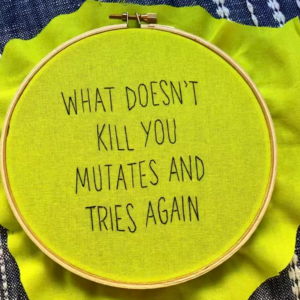
Kidding aside, what IS new about this profession? Truly. Delivery. That is it.
Earlier I joked about how the invention of the automobile was bad news for the buggy manufacturer, but what did they have in common? Transportation. Whether on foot, on horse, by carriage, or by EV, the common denominator is moving people and things from Point A to Point B. That’s it.
Simple.
Now what about writing? We are storytellers! Humans are a story people, meaning technically we will never be out of a job. That said, while we will never be out of a job, this doesn’t mean we get a pass to do our job the exact same way forever and ever and ever.
I used to pick on writers about the blog. We writers create entire universes that never existed, exotic, alien lands, create new languages but the minute anyone told us we had to blog? We blogged about writing…because we were writers.
***Pro Tip: Readers don’t care about the craft of writing unless we authors screw it up.
Sometimes we can get in our own way. We fail to use that wonderful creativity that helps us shape unforgettable stories and apply it liberally other areas of the profession.
It can be a lot.
We are responsible for so many more aspects of our career—web design, covers, formatting, reviews, social media, branding, audio, blackmailing, puppet shows and flea circuses—but that actually means we are also in a lot more CONTROL over our destiny.
Writers exercise more agency than ever in publishing history.
With GreatUltimately, I would LOVE to offer you a Publishing Snuggy but this industry is never going to be One Size Fits All. Trust me, I have been exploring a lot of new ways of doing things over the summer, and it looked a bit like this….

For brevity’s sake, we aren’t going to deep dive this too much today. Before we meet again, however, here are some things I’d like you to ponder.
What KIND of author do I want to be? There is no bad answer, but a pulp writer is vastly different from a James-Clavell-Asian-EPIC-SAGA-author.
Am I good at long-form or short-form writing or both?
How are my technical skills? Does technology scare me, and if so, can I overcome that fear to deliver content in new and refreshing ways? If I am not tech savvy, do I know anyone who IS? Can I upgrade my Model-T to a Space X rocket? Or something in between?
Dream up new stories, yes, but also dream new ways to connect future readers TO your stories.
How are my marketing skills? Do I understand SEO? Is marketing/advertising one of my strong suits? If you’re a marketing SEO ninja by day? Use it! If not? Not a game-stopper. We just need to work around it.
Where am I mentally/emotionally at this stage in my life?What operational pace can I reasonably expect out of myself? Twelve years ago, I had no trouble churning out 5K words a day, while editing, doing hot yoga, Jiu Jitsu, and rescuing kittens. But, I was also younger. I wasn’t homeschooling a gifted 10th grader while helping my aging mother.
This is a career that will have peaks and troughs of what we are physically, emotionally and mentally capable of doing. Remember, the goal is the long haul. We are in a marathon, not a sprint.
What is my WHY?
Yes, we can talk about how to handle the latest publishing crisis, but that will pass. Then there will be another crisis, and another crisis, and y’all get the point. We have to find a WHY that is robust enough to keep us going through good times and bad. We’ll get cooking and booking until we hit that NEW mid-write crisis that we’ll need to push through.
And, the most important question of all….
Am I Boring? No More Literary Meatloaf!
Believe it or not, audiences are in crisis, too. I have over 520 audio books in my library and yet still have credits sitting there unused. Despite my vast inventory, I listen to my favorite 20-30 books over and over because—to be blunt—there’s just so much BLEH on the market. I also canceled Netflix and almost never go to the movies for largely the same reasons.
It’s already annoying culling through the downright terrible, but you what’s even more tedious? Sifting through the sea of mediocrity. That’s in ALL mediums.
With as much competition as we have in the marketplace, we no longer have the luxury of serving leftovers.
One of the reasons Hollywood and Disney (and others) are taking such a beating is because they quit being brave. Instead of taking any authentic risks, they’re delivering us franchise movie after franchise movie. It’s all CGI with no real substance.
The world really wasn’t desperately in need of Transformers 15.
That, or they are taking successful stories, then making surface changes that require no creativity. Let’s make the Wicked Witch of the West…TEAL, and the ruby slippers chartreuse. Sure, because all audiences were waiting on the Wicked Witch to just be a different shade of green. Gimme a break!

Audiences are hungry for really great stories a HUGE secret to success these days? DARE TO BE DIFFERENT and tell a really FRIGGING AMAZING STORY! More on that…next time.
What are Your Thoughts? How are YOU in a Crisis?Have you fallen for the myth that if you just overcome (Insert BS Life Problem HERE) then everything will even out? Is it easy to fall into wishful thinking? To stumble into nostalgia and lose your focus?
I hope everyone had an amazing summer. Me? I’ve been exploring the joys of replacing an entire sewage system (only one of many glorious adventures.)
Do you struggle to set goals with the increased pace of change? Or, are you excited with the new tools out there and accessible to everyone?
If you have something new and shiny you’d like to share, let me know about it in the comments. If there is something overwhelming you that you can’t seem to figure it out, drop a comment and maybe we can work it out together!
The post Help! I Think I am Having a Mid-Write Crisis! appeared first on Kristen Lamb.
April 19, 2024
Bad Decisions: The Crucible of Great Stories

Bad decisions make the best stories.
If we want to write about people who make the right choices, who plan their work and work their plan, who always keep a cool head, then that is the realm of self-help not fiction. Fiction is about good people—who mean well—doing selfish, foolish or downright dumb things.
When we have characters who have all the looks, skills, talents, and can be counted on to always do the right thing—and do it with poise and grace. This can morph into what is called a Mary Sue Character.
Granted, in the greater scheme of things, some decisions are better than others. Not all decisions are bad decisions if we have the right context.
Sure, if someone abandons a baby at our door, one might think that lighting up said baby with flamethrower is a bad decision…unless we learn that it isn’t a baby human, rather a baby demon (left there to kill us and eat our soul).
Context can make a huge difference.
This said, I imagine most of us don’t wake up and think, “You know what? I think I will do something epically stupid today.” The same thing goes for our characters.
Thus, while we need our characters to make bad decisions, we have to be really careful how and why they do this or we can inadvertently either make them tedious or Too Dumb to Live.
Both types of characters are hard to root for.
So, how can we organically create a character who makes bad decisions?
Use Emotion Amplifiers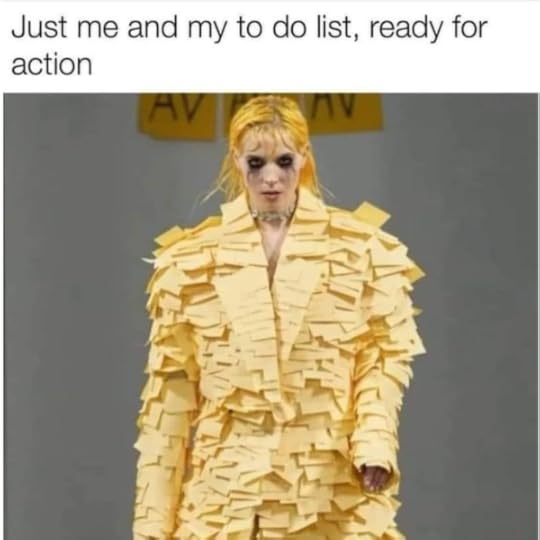
Angela Ackerman and Becca Puglisi, creators of the incredible set of resources The Writer’s Thesaurus series (I strongly recommend buying them ALL) are releasing a new Emotion Amplifier Thesaurus in May.
I LOVE, LOVE, LOVE this idea of emotion amplifiers because, if we even look at our own lives, how many times have we lost our cool, cut off a relationship, quit a job, or just made a royal mess out of everything because we were in a bad emotional spot?
Any other time, we might have handled adversity with dignity and aplomb. The problem is, when we happened to show our metaphorical butt, it wasn’t any other time.
Let’s say this is the week our lowly MC might have been struggling with a bad cold. But since people were relying on him and he’d never once been late or missed a day, he chose to go in anyway so he didn’t place an unneccesary burden on his coworkers.
Unfortunately, on the way to work, his car unexpectedly broke down and stranded him in triple digit heat. Since he’s been sick, he forgot to charge his cell phone, meaning he had to walk in dress shoes to get help.
Which, of course, made him late.
All that was bad enough, but then his boss chews him out in front of everyone on the floor and accused him of being—of all things—lazy.
I am banking that you guys are not perfect people. Perfect people are not my audience. So I’m fairly certain all of us can completely relate to this poor imaginary soul I just described.
Decisions and Dimension
Emotional amplifiers can make our characters a) far more relatable and b) far more forgivable. Writing fiction is hard. Yes, I know the rest of the world believes what we do is super easy, but yeah…no.
It can be really easy to fall into simply getting our MC (main character) from this point to this point to that point almost like we are following an instruction manual. And that is possibly fine for a first rough draft.
But then ask, “How can we deepen these characters?”
Throw in emotional amplifiers. They aren’t making decisions from an ideal place where everything is going well. In fact, in Act One, our characters should be, by and large, mostly, if not totally reactive.
They can be dealing with sickness, the climate (unusual heat wave), the strange/unfamiliar, stress, etc. etc. This is going to cloud their judgement and, when they do make “bad” decisions, the audience forgives them.
Remember, it isn’t as important how the MC starts a story as much as how they END one.
That is what makes a hero.
Aside from emotional amplifiers (going through a divorce, kids acting out, loss of a job, recent death, etc.) we can also remember that whatever scenario our MC faces…they should not be prepared to ideally handle it.
Even something as simple as a migraine or toothache can make life derail with a quickness.
Also keep in mind that your character is not the only on in your story with stuff going on. Yes, my imaginary MC above got a royal butt chewing from a normally reasonable boss. But, maybe unknown to the MC, his boss just found out his wife was leaving him right after the company owner gave the promotion he desperately needed to his hard partying kid to “teach him responsibility.”
Yes, bad days have a funny way of colliding with spectacular results and mayhem.
Ignorance and Bad Decisions
I don’t know about you guys, but sometimes I look back at my life and wish I had a time-traveling DeLorean so I could zip back in time to kick my own @$$.
Now, back in 1995, did I think doing X, Y, or Z was a great (if not good enough) decision? Duh! Obviously. That is the b!t*h about maturity.
We only gain maturity through experience, and only gain experience by screwing up. The more we screw up—and learn from those bad decisions—the more mature we become. Which is all well and good once we’ve made it through the trial by fire in one piece.
Obviously, once we are on the other end of any catastrophic period of life, we can look back and slap our foreheads. The “right” answers seem so obvious.
Hindsight is 20/20.In the meantime, our characters (like us) simply have to choose the best they know how and muddle through. They might have limited information, limited skills, or limited options.
Regardless, the MC believes at the time they are doing the best they know how.
The Best Decision Among Crappy Decisions
Here is another gem y’all might have faced. When we look at our life of the lives of those around us, we have to be careful. It can be easy to get all judgmental (or maybe that is just me). We like to think we would have done things differently.
Maybe.
This is where fiction is wonderful for developing human empathy. Sometime all decisions suck. All that is left is to choose the least sucky of the list of sucky decisions, right?
This is where those emotional amplifiers can really come in handy. When humans are stressed, our bodies shift into what is referred to as “Lizard Brain.” This is survival mode and out mental drop-down menu limits us to three options: fight, flee, freeze.
If our character is under enough stress, the very literally may not see other options that at any other time would be obvious. So, while fight, flee, or freeze might be excellent options for outrunning a swarm of bees, it might be less of a bright idea when dealing with that difficult coworker.
Time is NEVER on the MC’s Side
Whenever I do book coaching, I have all my clients do a log-line. This is where you tell me your entire story in ONE sentence. Using this one sentence, I usually can spot why and where the author is struggling with their story.
Here is the formula I use to create a solid log-line (story).Intriguing protagonist + active verb + core story problem (antagonist/Big Boss Troublemaker) + stakes + ticking clock.
If any of these elements is missing or weak, it will muck up a story. One of the most common pieces writers overlook? TIME. It is never your friend. Ever. Not in life and not in fiction.
Being rushed is one way a character can make bad decisions. Not only might the character be reacting (fear) but if they don’t have the necessary time to do the research, ask wiser mentors, war game out possible ways their decisions could go to hell in a hand basket…they are almost guaranteed to be making a “dumb” decision.
Bad Decisions Fire the Crucible
This applies to pretty much all characters, even when we are dealing with a series. Yes, in Book One, our MC will arc to a certain degree. In the beginning of the story, they should be missing some critical knowledge, training, maturity, etc. that would make them fail. The story crucible is what fires out the character impurities.
Yet, even if we have a series, our characters should ideally keep growing. Last post I mentioned one of my favorite epic high fantasy authors, Joe Abercrombie.
Abercrombie has some seriously bad@$$ characters. Yet, maybe the fighter with a reputation that withers his opposition still needs to learn a thing or five. Put him in a situation where those skills that served so well in a different time and place are actually a handicap.
Redeeming Mary Sue
Characters who always have the answers, who do and say the right things all the time are dull as dirt. Many new writers begin with a Mary Sue and then I have to go in and have them take away some of the shiny perfection.
That is normally what I recommend. Yet, there are ways Mary Sues can become fabulous characters. Maybe in their world they are perfect and know how to do everything expertly. But what happens when we toss them into a place that those “assets” are not only “detriments” but could get them and others hurt or killed?
The new Amazon series Fallout is wickedly great fun. Amazon MGM has done a fabulous job of employing a Mary Sue character in a wonderful, unique way that will have you on the edge of your seat.
Fallout is based off a video game and is a diesel punk fused with a post apocalyptic story. I promise not to ruin anything because at least the first season of the series was brilliantly executed (which, if you’re a die hard gamer, you know that is highly unusual for stories based off video games).
The MC Lucy MacLean grew up in a very 1950s world with almost a campy exaggeration of 1950s traditional American values. Good citizenship, manners, politeness, excellent hygiene, and friendliness are highly valued attributes and Lucy excels at all of them. In fact, she might even be viewed in her society as a “perfect” success.
Now, take this very clean, very naive and optimistic young woman and cut her loose in a post-apocalyptic wasteland. Suddenly all those Mary Sue qualities that scored her top marks in Vault 33 very well could get her and others killed on the surface.
This (below) isn’t exactly what Lucy likely imagined when it came to her knight in shining armor….

Remember I said good and bad decisions rely heavily on context?
But, if Lucy hopes to survive in a world that has gone mad, then she will have to grow, change, and adapt. This is even more critical when considering, in this world, there aren’t really any good decisions…only the one least likely to end in disfigurement, dismemberment or death.
Yes, it has plenty of violence but it is that raw brutality juxtaposed to silly idealism that actually makes the Fallout story (and the characters) too good (or bad) not to love.
Thus, when you are creating your world, another great way to turn up the heat on a character is to give them some exemplary skills…that just do NOT work in the world/story they must navigate.
Just like Abercrombie’s Logan Nine Fingers, most ruthless fighter in the North, has to relearn how to get around when thrust into “civilization,” conversely Lucy MacLean learns pretty quickly that “Please” and “Thank you” and taking turns just ain’t going to cut it when everything from the mosquitos to the locals are trying to rob you, kill you, and maybe even eat you.
Any Thoughts About BAD Decisions?Do you find yourself being too nice to your characters? Does it frustrate you when stories make it too easy on the characters? Can you see how emotional amplifiers can take a relatively normal situation and escalate the tension for some great story drama?
Any experience in life?
I LOVE hearing from you! What are your thoughts? Opinions?
The post Bad Decisions: The Crucible of Great Stories appeared first on Kristen Lamb.
April 9, 2024
Perspective: POV Can Revive or Ruin a Story

Perspective is one of those techniques that, I feel, doesn’t get nearly enough credit. Sort of like in theater. All the focus is on the actors and the sets, but no one really gives a fig about the lighting or sound…until someone mucks it up. Right?
Whether we are watching a movie, a play, a concert or reading a book, it is super easy to take a lot of elements for granted.
Perspective is one of those tools that doesn’t get near the attention it should.
WHO is telling the story? HOW MANY PEOPLE are telling the story? This actually matters…a lot.
We’ve talked about POV (Point of View) a handful of times, but I don’t believe we’ve talked about it the way I’m going to address it today.
Here is an older post describing the main types of POV, Point of View���What IS It? How to Find the Perfect Voice for YOUR Story. Then there is Deep POV, which is a wonderful tool as well and quite popular these days.
Yet, once we get beyond choosing whether to write in first person, second, third, third-shifting, omniscient, what then?
WHO’S PERSPECTIVE IS IT?
Believe it or not, changing up who’s telling the story matters…a lot. In fact, it can breathe new life into old stories that have been done so many times no one really cares anymore….
That is, until WE (writers) flip the script.
POV is one of those elements we can alter that drills into the marrow of the story. It reaches beyond silly, superficial changes that claim to make the story “wholly unique” but really don’t, especially in an age of CGI.
Think of some fantastic stories that “flipped the script.” Wicked took The Wizard of Oz and told it from the perspective of the “Wicked” Witch of the West.
There is this thing we storytellers rely upon that readers (ideally) don’t even notice—the suspension of disbelief.
Bad or Merely Misunderstood?
Thus, in the original Wizard of Oz, when a house lands on the “Wicked” Witch of the East and the “Good Witch Glenda”—gaslighting psychopath she is—pats the bewildered Dorothy on the back for committing third degree murder (possibly argued down to involuntary manslaughter)…we accept this is okay.
And when Glenda then encourages Dorothy to steal the shoes off a woman who’s been dead all of a minute, again, we accept this is totes legit.
Thus, when the “Wicked” Witch of the West arrives and is arguably upset that not only has her sister been killed, but her killer didn’t even wait for the body to cool to room temperature before pillaging her corpse for fabulous shoes…she is OBVIOUSLY the bad guy, right?
Right.
Sometimes the most clever stories are those told from the “villain’s” POV.
Mind you, I am not saying to explain who they are and why they did bad things. Hannibal the Cannibal was far more fascinating before the author tried explain. We didn’t need Hannibal’s tragic childhood and why he turned into a serial killer….*yawns*.
Changing Perspective Can Be Good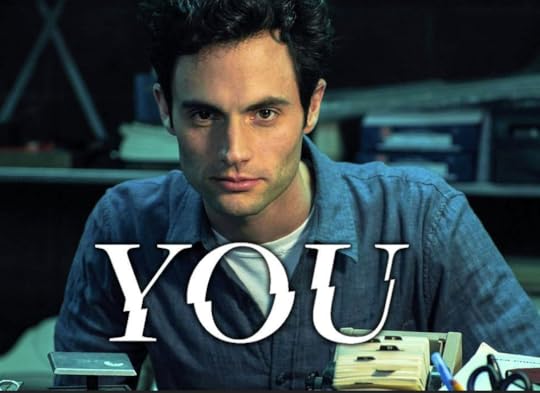
Obviously, Wicked is a great example. I also really enjoyed Maleficent. Fairy tales seem to be a favorite for shifting perspectives because they’re stories most people are familiar with. That and we’ve long (passively) accepted who is good or bad, right or wrong.
Yet, whenever I’ve talked about villains, one core ingredient that elevates them above mustache-twirling caricatures is their MOTIVE. Great villains are great for the simple reason that we either want to know the WHY or we empathize with the WHY.
Caroline Kepnes’s You did a fabulous job using the rarely touched second person perspective. She took us inside a stalker’s head and, by employing second person, actually created quite the brain-bender. We find ourselves rooting for a seriously insane character!
When Changing Perspectives Goes Wrong
While it is a fantastic exercise to look at a story and see if we can get a fresh perspective, it can easily fall into gimmick.
The first example that comes to mind is the Pixar movie that really never needed to be made…Finding Dory.
I LOVE Finding Nemo and have used this “kid’s” movie to teach plotting countless times: What “Finding Nemo” Can Teach Us About Story Action
I’ve watched Finding Nemo more times than any “adult” probably should and never get tired of it. Yet, years ago, when I took Spawn to see Finding Dory, I fidgeted more than a toddler in a doctor’s waiting room.
I couldn’t pay attention. My mind wandered. Halfway through the movie, I decided to use a tool I employ when editing. Put it in my log-line formula to see what was missing.
Story Formula:Intriguing Protagonist + Active Goal (Problem) + Stakes + Ticking Clock = STORY

First of all, while Dory worked amazingly well as an antagonist, she utterly flopped as a protagonist. A fish that can only remember super short-term was the perfect foil to drive Marlin (the control-freak father fish) to arc and loosen the hell up.
Yet as a protagonist? She already HAS a family with Marlin, Nemo and the others in the fish school from the first movie. Out of literally NOWHERE…Dory “remembers” her parents and, for some inexplicable reason, wants to find them (when she can’t remember anything long-term?).
That part was ALREADY a stretch.
Then, when she finds “home” she discovers her parents are GONE. Okay. BUT, they have been taken to live in a super fancy state-of-the-art aquarium that eventually will be shipped to Chicago (I guess this is the ticking clock?).
What are the stakes? Instead of her parents being in the wild surrounded by predators her parents might die from fish old age?
And she JUST remembered she even HAD parents so exactly what emotional void would be there should she fail?
A flawed story doomed this movie from the beginning. It desperately tries to rely on Pixar’s unique brand of campy humor but even that wasn’t enough to save this idea that was already DOA.
A Christmas Story…(Perspective) DISASTER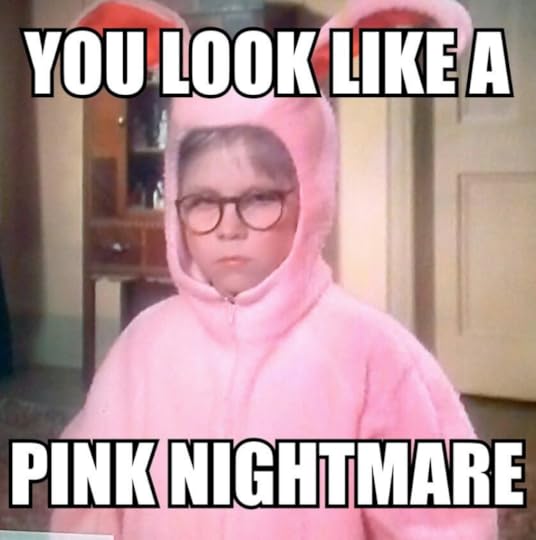
Over the holidays, Hubby insisted we watch the new movie A Christmas Story Christmas. Another sequel that never needed to be made. WHY? Perspective!
The GENIUS behind the original movie, A Christmas Story, ironically is the same reason the second movie suuuucked.
The original is told from the perspective of Ralphie the CHILD, whereas the sequel is told from the perspective of Ralphie the ADULT.
In the original, all the magical thinking (his visions of defending his family against bandits with his Red Rider BB Gun), the unrealistic expectations (Orphan Annie decoder ring), and the social oopses (FUUUUUDGE!) are positively hysterical.
The charm of the original movie is that, regardless which generation one happened to be born in, we can ALL relate because we once were KIDS. We viewed the world as kids.
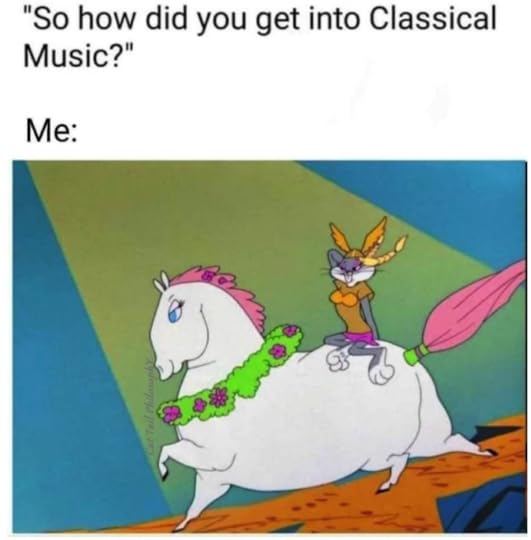
Kids deal with bullies, what it means to back off on or take up a dare, hyper-exaggerating the actual real-life outcome of any event (for good or bad).
From envisioning ourselves hitting the home run that wins the game and makes us suddenly popular to being certain a parent “will murder us” for a bad grade, everything is BIGGER when we are kids.
Why?
Because the world literally IS bigger. And we are small and still trying to navigate a rather alien place. That is what makes the original a classic.
But, to give the same attributes/perspective to a bumbling middle-aged man? For me, it made the MC seriously creepy and pushed boundaries of believablility.
Not only did the story fall utterly flat, but (for me) it bordered on rendering not just the MC, but all other characters, unlikable (Eg. Like how Ralphie and family enjoying a “perfect Commercialized Christmas, utterly dwarfs a very recent and significant death in the family).
Perspective MATTERS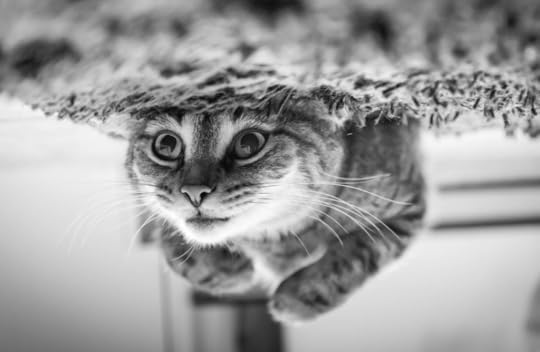
Perspective is powerful, and it is good practice to learn to write believably from different POVs.
A billion years ago, when I ran a writing group in DFW, I’d give the other writers exercises to hone their skills (and for fun). At one point during my tenure, we had too many of the new writers who had characters who all sounded the same.
***Ideally, I should be able to read your dialogue (without tags) aloud and be able to tell which character is speaking.
Thus, I decided to give a fun homework assignment to SHOW what I meant by voice and perspective.
The exercise went as follows…
Story Prompt: Imagine a family. Mom, Dad, a grandparent (can be grandmother or grandfather), and one teenager going on vacation. The family has been saving for ages for this getaway. Thus, there is probably way more emotional investment than is “reasonable” as to the outcome of this trip. Their vehicle breaks down in the middle of nowhere.
WHAT HAPPENS? Tell the “story” from all four POVs.
There are no limits. It doesn’t have to be present-day. The characters don’t even need to be human or alive. Just make me believe the POV.
When I got the results, I had never witnessed so much creativity out of any group of people. There were stories of families that had a spaceship breaking down, time-travelers who had a covered wagon break down, regular American highly dysfunctional families, on and on. It was truly amazing!
Characters Change the Story
Be creative!
What if Dad is having an affair?
What if Mom is secretly addicted to pain pills and runs out?
What if the teen is recently in remission from Leukemia?
What if Grandma is a tireless flirt who���s antics got her turned into a vampire and the family can���t understand why Granny wants to travel only at night?
What if the teen is an asthmatic and forgot his inhaler?
What if Granddad was part of the mob and is recognized while on the road?
What if the teen has been recruited for a mandatory deep space mission by the New Earth government and will never see the family again?
What if the teen was adopted and the purpose for the trip was to meet the child���s birth mother? How would this impact the emotions of those in the vehicle?
What if there used to be TWO children and one had died in an accident a year previously?
Do you see how by changing WHO these people are, this cannot HELP but affect everything else?
What if the accident actually killed the entire family and they have yet to realize they’re dead? They just think the locals are rude and ignore them.
The possibilities are endless!
Perspective and Story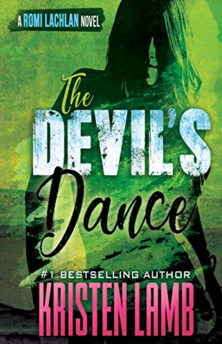
Sometimes, if we have a fabulous story idea but everything just seems to be falling flat, think about POV. Have we cast the right person to be the MC? When I wrote my first novel, The Devil’s Dance, I ran into this exact problem.
In the earliest versions, Romi (Riley) was a veteran from the war in Afghanistan suffering PTSD. The beta readers hated her. For whatever reason, Riley was simply not connectiong.
Okay. Fair enough.
But, since I knew the story idea was solid, I went back to the drawing board and changed the MC.
Instead of a gritty female action hero, I fell back on my blogging voice. I changed third person to first person and make Romi a fish-out-of-water who gets in a mess that is far over her head.
Just that ONE change created a totally different story and helped me create a neurotic, self-deprecating but funny MC readers loved.
What Are Your Thoughts?Do you like stories that shift up the perspective? Maybe that tell the same story from a “villain’s” POV? Are there certain POVs you enjoy more than others?
Have you ever switched either POV (from say third to first) or switched the MC because the story wasn’t working? Conversely, do you have a story you’re struggling with and only now realize you might not have the right MC? Or it needs to be in a different POV?
Can you take the perspective exercise above and use it to refine your use of dialogue? Feel free to give it a try and post in the comments!
I’d love to read your work!
The post Perspective: POV Can Revive or Ruin a Story appeared first on Kristen Lamb.
April 2, 2024
Imposter Syndrome: Am I a REAL Writer?

Imposter syndrome is a feeling very common to many creative professionals, myself included. The irony about imposter syndrome is that it can afflict many hard-working, high-achieving individuals.
There is no logical reason for feeling we don’t belong, or that our success is somehow a fluke. It’s bizarre to believe we don’t deserve what we worked very hard to accomplish, or that, at any moment, the gig will be up. We’ll be found out.
Did I mention writers often make no sense?
What I find so utterly hysterical (in the maniacal-laughing-losing-my-marbles way) is that, years ago, my mentor, NYTBSA Bob Mayer warned me this would happen and I brushed him off.
I was different. Special. Okay, apparently more “Bless your heart” special, turns out. When I was a new writer who couldn’t find the antagonist–let alone my own butt–without a map and a flashlight, it seemed so simple.
OBVIOUSLY, I wasn’t a real writer then because I didn’t have an agent, hadn’t been published, had hit no lists.
***Granted, I was making bank as a professional technical writer. But that wasn’t a “real” writer. As an author? Clearly an imposter.
It didn’t help that our industry spent a miserable decade arguing if indie and self-pub authors were “real.” A frigging decade wasted playing Schrodinger’s Writer while Amazon wiped out one publisher after another and laid waste to one bookstore after another (including Borders and B&N).
A traditional author could fail to sell a thousand books yet, existentially, our profession considered those writers more “real” than an indie author who sold millions of books.
Weird. I know. Alas, we will leave that for another blog.
Imposter Syndrome & Success
One would think success would improve imposter syndrome, yet not necessarily. I honestly thought when I hit various professional benchmarks I would no longer feel like a fake, despite the fact that Bob warned me it would likely only get worse.
Suffice to say, I have worked very, very hard and have been extraordinarily blessed to enjoy many successes. Hey, people paid ME to go to New Zealand to…talk…about WRITING. If that isn’t a win, what is?
So, if you are new, you should probably give up now.
Still here?
Whew! That’s good. I’d hate to actually run anyone off for real. But, I can say that I have blogged about this from the perspective of a total n00b who barely felt she even had a right to blog. Seventeen years later, I’m coming at it from the perspective of a seasoned professional.
It isn’t terribly different.
Most of the goals I set for myself when I began this journey over two decades ago, I can say I have accomplished.
And yet, it takes everything in me to believe I genuinely earned anything. That my stack of achievements I sacrificed years for weren’t simply…flukes. Or even then, maybe those were real achievements, but that was all the talent I had in me. I’m worse than an imposter…I am a wash-out!
Did I mention writers often make no sense?
4 Types of Imposter SyndromeWhen researching this little topic I discovered there are actually different types of imposter syndrome. Apparently being a crazy-high-maintenance-neurotic is not One-Size-Fits-All. I’d like to give a nod to VeryWellMind’s post Imposter Syndrome: Why You May Feel Like a Fraud for the inspiration.
The Perfectionist
I have talked many times about perfectionism on this blog.
All of us want to do a good job. We want to put our best foot forward. We all say that we want feedback and critique, but deep down, if we are real honest, we want people to love everything we say and do.
Unfortunately, this isn���t the reality.
We can���t please everyone, and it is easy to fall into a people-pleasing trap that will steal our passion, our art, and our very identity.
I���ve seen this happen time and time again with–um, other–writers. They rework and rework and rework the first chapter of their novel, trying to make it ���perfect������which is actually code for ���making everyone happy.���
Here is the thing. Not gonna happen. Ever.
One person will say our book is too wordy. Another wants more description. We add more description and then another person is slashing through, slaughtering every adjective and metaphor, while saying dumb crap like “all adverbs are bad.”
***Hint, they are not. Only redundant ones are.
This variety of imposter syndrome, I can say (at least in writing) I do much better with these days. I have managed to take my own advice.
Perfect is the enemy of the finished.
No half-finished “perfect” novel ever sold a bazillion copies but many finished-yet-imperfect ones have.
A great way to treat this form of imposter anxiety is to go look up your favorite authors and read their bad reviews. For instance, I hit a wall this past week on my WIP and, since I am a massive Joe Abercrombie fan and his writing, unlike mine, is perfect…I read his reviews.
And someone always b!tches. ALWAYS!
Thing is, at least he has a stack of best-selling breathtakingly brilliant books for the haters to b!tch about.
The Expert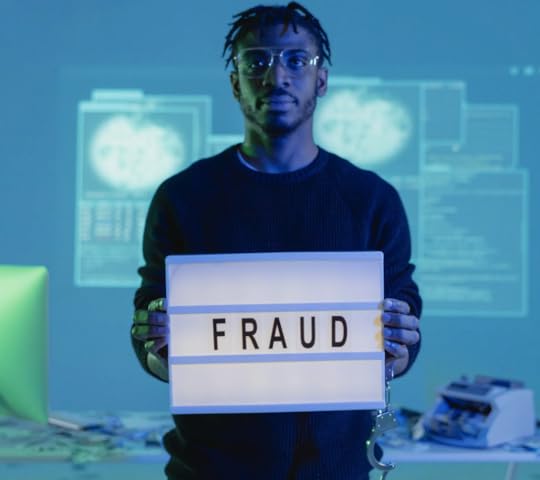
I can definitely relate to this one. Speaking of Joe Abercrombie. He writes epic high fantasy novels. I cannot wrap my brain around how he not only builds these worlds, but manages to keep up with them!
I’ve spent almost a third of my life blogging, mostly on the craft of writing, yet still encounter authors who mystify me. They might as well be unicorns.
I’ve relentlessly pursued this mission of teaching about every aspect I can imagine when it comes to the craft of writing. I read two books a week, every week (audio books are the only way that happens), and have for years.
I’ve broken down books from every conceivable genre, all eras, and yet there is still so much I do not know and likely never will. The more I learn, the more out of my depth I feel.
But that is the thing isn’t it? We cannot know everything. No one can!
Did I mention writers can be a smidge ridiculous?
The Born Genius
I have to confess, I don’t know if I really struggle with this. In fact, I went to two different testing centers when I was trying to see if I was, in fact, on the ASD spectrum (I have Asperger’s).
I’ve taught myself three different languages, how to play clarinet, how to paint, and how to build a French well drainage system. I never really believed I was as much smarter than others so much as I was willing to outwork others.
That said, it really was humbling to get my I.Q. test results and see “Average.” One doctor even said I was “Below Average” verbally. I can’t help but think something was wrong with that test…or the doctor. Especially after I corrected her pronunciation of “mnemonic.”
Me: Did you mean MNEmonic or PNEUmonic? One is Greek for mind or memory, whereas the other is Greek for lungs.
Doctor: *withering stare*
Alas, I really never thought I was a born genius, though who wouldn’t hope, right?
Yet, how often do we see this in movies and pop culture? This myth that we are supposed to just “get” everything the first go ’round or something is wrong? How many of us give up on something we might really excel at because of unreasonable expectations?
The world expects every person’s first book to be an out-of-the-park work of genius and we fall for it. Who would expect the same out of a gymnast or violinist or even someone writing computer code?
Did I mention writers can be a tad unrealistic?
The “Self-Made” Imposter
Did you have to ask for help to achieve your success? Can you truly say you did it all on your own? If not, then clearly *hair flip* you are a phony.
I don’t know if people from other countries fall prey to this myth as much as we Americans. Who says we don’t have our own mythology here in the “New World”? Like the pegasus, Hercules, or King Arthur, want to know another myth equally as fictional?
The “self-made” success.
Usually we hear this nonsense from people who say BS things like, “You have the same 24 hours in a day as Beyonce.” Really? Because I mowed my own yard yesterday and have been doing laundry all day while I write and homeschool a gifted 10th grader.
Pretty sure, at the least, Beyonce not mowing her own yard.
We all need each other. Heck, that is why I’ve dedicated countless hours to this blog! Since I, apparently, have an average to below average I.Q., I wanted to break down concepts simple enough to where even I could understand them. And have a great laugh along the way.
There is no way I could keep the steam to keep writing these posts month after month, year after year, if you guys weren’t a) thoughtful enough to read these posts b) kind enough to comment (really love those) c) subscribe. There would have only been so long I could have blogged to the ether.
I’ve lost count YEARS ago how many wonderful people I have to thank for everything in my life. No way in a billion years could I do this alone and even then, who’d want to?
Have I mentioned writers can be a little really needy?

All this to say that feeling like an imposter is pretty common, especially among creative professionals. And why wouldn’t it be? There are no hard and fast metrics for measuring “success.” Our profession is largely subjective.
We also face a world that constantly demeans what we do while, ironically, spending most of their free time and disposable income devouring the fruits of our labors. The same @$$hats who claim writing a novel is easy are probably the same folks who paid us to write that four-page essay in school.
It just comes with the territory.
Yet, after getting out all this collective angst, I will say that feeling like you are an imposter, a fake or a fraud or somehow do not deserve what you’ve worked for can actually be a good sign.
Want to know who has impenetrable confidence and zero doubts about their amazing talent and inherent brilliance?
Talentless hacks.
People who have zero clue how to write, would never deign to read another author’s book (let alone study it), who actually brag about never reading, and who need no lessons on writing because they are naturally gifted and know everything.
This writer never has imposter syndrome. They never run out of rubbish to toss on a page then market and promote and spam endlessly to nearby victims.
And I don’t need to worry about insulting any of them, because it isn’t like they’d read a blog that focuses on improving their craft.
So, you’re welcome!
In the End…My advice, when it comes to writing, is to shop it, ship it or kill it. Regardless, keep moving forward.
If we hope to be successful at this writing thing, we must master two diametrically opposite skills���latching on and letting go. We can���t finish if we don���t sink in our claws, but we also can���t finish if we fail to ever let go.
Virtually every long-term successful author didn���t make it with one novel. We make a good living at writing by writing many novels. But, if we don���t get good at shipping? Odds are we will never be able to write full-time.
Also, learn your craft!
The more you read, study and practice, the easier writing becomes. Read everything in your genre and outside of it. Study books. Break down why you liked them or didn’t. When we take the time to fill that creative reservoir, we have so much to draw from. If we read enough fiction, we can almost “write by ear.”
We won’t need as much revision and editing because we’ll have spent so much time with fiction–good fiction–that we will be able to intuitively sense when something if “off” with plot, timing, character, etc. Take classes, read blogs, read craft books, read fiction…then butt in seat and practice.
Practice alone is not enough. If I go to the driving range and hit thousands of golf balls with zero training, I get a bad back. I don’t become Tiger Woods.
Same with writing. We need mentors, masters, inspiration, tough love, training, and a relentless pursuit of bettering ourselves (practice) to truly be great.
When we know our craft and excel at finishing it is also a lot harder for that imposter devil to get under our skin–as deep.
So breathe and just move forward. It gets easier, until it gets harder.
Did I mention writers are masochists?
What are Your Thoughts?What are your thoughts? Do you feel like an imposter? No matter how much you do or how hard you work, you think it has to be luck or worse, a mistake?
Do you find yourself too concerned with being perfect? Do you think you allow perfectionism to feed you procrastination? Are you still trying to ���fix��� that first novel and haven���t let go? Do you have trouble moving forward?
Apologies for being away so long. I gave up blogging and carbs for Lent. Neither was easy but I needed a reset and time to work on MY books. Missed you guys and am very happy to be back.
Please! I LOVE hearing your thoughts, questions, advice. Even maybe suggestions on topics you’d like to hear more about.
The post Imposter Syndrome: Am I a REAL Writer? appeared first on Kristen Lamb.
January 31, 2024
Why is “Suddenly” Everyone on the Spectrum?

A little while back I introduced the Neurodivergent Spectrum, what it IS, and why it could particularly apply to writers and creative professionals. I even revealed some about my life, struggles, and late diagnosis in my post Neurodivergent Authors: Not Lazy or ���Broken.���
There are many reasons for my late diagnosis, and we will cover some today.
***I am ALSO going to continue blogging on craft and brand, but this site has always focused on offering a holistic approach to creative professions—craft, branding, business, life and mental health.
But, before we talk about the autism spectrum, I would like to address why people might want to “care” about this topic, from writers to non-writers to Neurotypical people.
First, there are a lot more ND people out there than anyone ever imagined. Secondly, I believe our modern world and the digital age is either creating, contributing or exacerbating the situation.

If we cannot gain understanding, insight and compassion regarding this topic, I fear we will miss out on a lot of incredible talent and relationships.
We’re going to likely be around ND people. If we can recognize what’s possibly going on with that person, interactions can run far more smoothly. If we see WE have ND issues, then there are all kinds of workarounds once we realize we aren’t stupid, lazy, crazy, or broken.
This is a post about grace for ourselves and others.
Spectrum Self-Diagnoses
I can totally appreciate why many people roll their eyes when someone says they are ADD or ADHD or have Asperger’s or Autism. Some people might shout me down for saying this, but a huge reason I was hesitant to be professionally tested had to do with my attitude about the ND spectrum.
I’d personally encountered far too many people who’d used being on the spectrum as an excuse for never finishing, for flaking out, for being undependable, for being emotionally out of control, etc. Then, I was supposed to excuse all the poor behavior away because they were “insert ND issue here.”
Some of these folks were professionally diagnosed, but many were self-diagnosed. For the record, if you believe you are on the spectrum, you’ll likely start with a self diagnosis. And that is okay, because….
Most Medical Issues Begin This Way
If we look at most of the health concerns we all face, we almost always begin with a self-diagnosis.
***Should we believe we “might” be on the spectrum, this is no different.
Say, I have a weird mole that is dark and itchy. I likely self-diagnose that it could be a skin cancer or melanoma. THEN I see an expert.
If I get a fever, bad cough, sore throat? I probably self-diagnose that I likely have either a cold or virus. THEN I go to a clinic to see what is actually going on. Could be a cold. But, it could be something far worse (cancer) or no big deal (severe allergies).
There is a lot of shade thrown around toward ND people regarding “self-diagnoses,” but what sense does that make?
In my opinion, there is nothing wrong with starting there, but we do need to see if we can get expert help. We might be on the ND spectrum but where exactly? We could also be struggling with other issues—eg. PTSS/PTSD from abuse or some other trauma.
The Spectrum is More than ADHD & Autism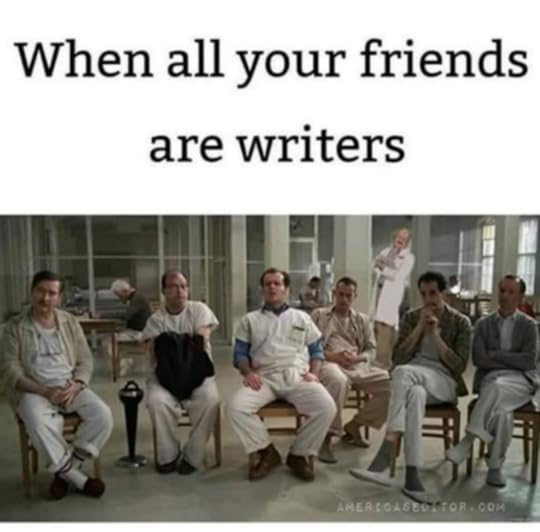
There is a lot of debate as to whether or not PTSD should be included on the ND spectrum (which can cover everything from dyslexia and dyscalculia to autism). Yes, PTSD (or PTSS) can cause structural changes in the brain. But, with proper treatment, much of that can be possibly reversed/healed.
Sadly, there is no healing ADHD.
Unlike those who are truly neurodivergent, PTSD isn’t a) congenital and doesn’t need to be b) permanent. ND people literally are born wired differently. It isn’t a result of a trauma or an acute stressor.
Thus, before we jump on the, “I must be ADHD” train, we might be struggling to pay attention because of undiagnosed dyslexia. We’re slow not because we can’t “pay attention,” but because it is such a struggle to work around a brain that tosses too many speed bumps in the way to be effective.
We might have PTSD and not recognize it, so we could be masking. Perhaps we are in denial, dealing with shame or guilt. Who wants our drama? So we mask.
Suffice to say, a spectrum self-diagnosis is a great start, but we want to make sure we’re getting good advice what is actually going awry. If we are on the spectrum then exactly how, where and to what degree?
If we aren’t, then what is going amiss that is looking a lot like a spectrum disorder?
Why a Diagnosis at ALL?
Since I believe I addressed this in other posts, I will be brief here. I did not self-diagnose (mostly out of pride, if I’m being transparent here).
It was not until over a half-dozen mental health professionals who were either friends, fans, or audience members who—after watching me speak—came up and said, “Hey, have you ever been tested for autism?” that I finally took things seriously.
Well, that is a bit of a lie.
I brushed almost all of them off believing I could just willpower my way through anything. Yep. That might have worked when I was younger and in a different world devoid of a BILLION blinking distractions. Eventually, however, the situation became untenable.
I was falling apart and pride and ego had to go.

Yet, when family members asked WHY I wanted a diagnosis, I had to answer that honestly. I don’t want or need an excuse, but I do need a plan of action that makes life doable and even enjoyable.
Once I understood HOW autism was affecting me, a lot of things changed. I am MUCH better at saying no, limiting activities, planning how I want to spend my energy. Now, others can appreciate why I practically LIVE in noise-cancelling headphones and they’re a bit more sympathetic when I ask to turn the lights down a little.
I could start being aware of my scripts. WHAT was happening right before I melted down? Exactly what transpired right before that bout of self-loathing? Why was I “seemingly” out of nowhere suffering sleep-deprivation, anxiety, or severe headaches?
Good news! We can actually rewrite the script! We’re writers.
***The answer to the above, for me, was largely environmental. Shop at times with no/smaller crowds. Get filters for my glasses/computer screen. Change the font on my computer to Dyslexie font. No screen time after 7:00 P.M. etc.
SUDDEN SPECTRUM Disorders
So now to the myth that SUDDENLY everyone is neurodivergent. Bear with me a moment because I am going to be a bit of a smart@$$. I am hoping everyone reading this believes that science, disease detection, understanding and treatment does improve over time.
We no longer diagnose people with consumption (Tuberculosis), Grippe (Flu), Apoplexy (a stroke), the Horrors (fever before delirium), Black Dog (severe depression), Falling Sickness (epilepsy), Mortification (gangrene), or Jail Fever (Typhus) etc.
***Click here for more . IMPRESS YOUR FRIENDS!
We also don’t bleed people to balance their humors, ladle Mercury down their throats, or insist they take Radium baths.
Or at least I hope not.
Cancer didn’t suddenly become rampant. We just didn’t have the tools and knowledge to recognize it existed, then to detect it, then to treat it, on and on. Hope y’all get the gist.
Yes, movies like Rain Man highlighted autism, but in ways, one could reasonably argue the movie almost did more harm than good.
The movie, Rain Man, showed the world a case of extreme autism (with other issues I’m not qualified to detail). Just because a person is autistic doesn’t mean we need a nursing aid to dress us and feed us before we go count cards in Vegas.
In fact, the concept there was even a neurodivergent spectrum didn’t even arise until the 1990s.
We are not ALL Rain Man.
Medicine & Science Improves
Or, at least we hope it does. Science is a process. As it improves, it can do a better job of detection. For instance, most medical and mental health professionals first only recognized autism when it manifested in the most acute forms (so severe the patient couldn’t function).
Then, many of these professionals believed until recently that children grew out of autism and Asperger’s (and also grew out of ADD, ADHD, etc.).
To make things even MORE fun, most mental health professionals—until very recently—believed only males could be autistic. Even I ran into this when seeking a professional diagnosis…in 2023!
I guess that doctor had never heard of Temple Grandin?
Suffice to say, I don’t believe that suddenly everyone is on the ND spectrum. I DO believe we are understanding the brain far better than we ever have in human history. And, because we understand better, we are realizing that “Normal” really is a setting on the dishwasher.
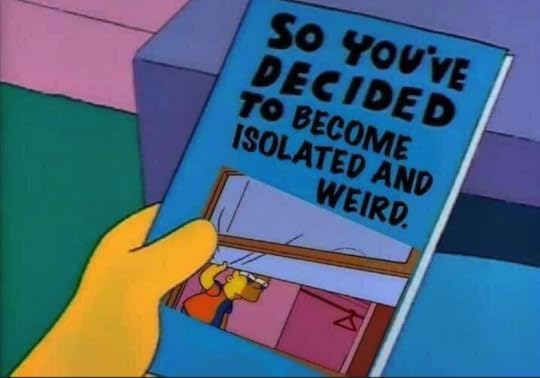
Many of us older people (who are finally getting a diagnosis or maybe realizing we might NEED one) recall the days of being called stupid, lazy, disruptive, defiant, or “bad” kids. We were daydreamers and flakes who “failed to apply ourselves.”
Since there was so little understanding of neuroscience, behavioral problems/character flaws became the default. Sort of like how, when people died of something like, say, pancreatic cancer (which kills very quickly), 400 years ago, clearly they were a victim of the “Evil Eye.”
Joking but not. Just pointing out we have come a LONG way in recognizing how amazing and variegated the brain IS.
“Thank” the Digital Age
Nothing happens in a vacuum, so obviously something other than neuroscience advances has driven the shift in perception. The digital age has been a blessing and a curse, at least for me.
Since I had severe social anxiety from an early age, it made it hard to learn how to be part of a group and conversation. Social media actually did wonders for my social anxiety. Humans learn by studying the group. But, if you are never part of a group because you’re “weird” or too scared, then how do you learn?
Then came Web 2.0….
EARLY ON, I joined a lot of chat rooms on Gather and groups on MySpace. Finally, I could watch and study. I could see how people interacted, took turns, “read the room” and recognized a lot of bad habits I had.
Since I had time to think through a response, I could respond better. The BACKSPACE button was and still is my BFF.
I also had zero concept that social interaction wore me out. Trust me, trying to seem normal is a LOT of work.

With social media, I could pace myself and interact at times my energy levels were better. When I fell into conflict, I eventually learned to back away, come back to it, think through what the person meant, etc. In many ways, social media made me kinder, gentler, and more compassionate with myself and others.
Additionally, I began to see my faults. My bad habits that turned people off on social media—AMAZINGLY—turned them off in life. Talking over people, being prideful, needing the last word (b/c I was so insecure), believing I had to be constantly entertaining, failing to really listen.
I am SO glad I don’t struggle with ANY of that anymore!
*dodges lightning*
I believe a lot of us ND people who used to just be weird loners with no friends or one or two friends started, for lack of a better term…showing up. Me? I went from the weirdo nerd who kept to herself reading and mostly engaging in solitary hobbies to finding my people.
Yes, on-line there were people like me who loved science fiction, D&D, campy horror films, and bad Kung Fu movies. People like me who also loved to argue whether Warp 10 was even possible or whether or not the sand worms in Dune should have spontaneously combusted due to friction.
Yes, this is the stuff that keeps me awake at night.
Again “Thank” the Digital Age
Conversely, while the digital age certainly offered ND people tools we’d never had before, it’s also created a lot of problems. We are starting to see the negative effects of having kids on technology too young, too much and too frequently.
Humans learn empathy by being around other people, studying body language and facial expressions. Most human communication is body language. When we are all in front of screens, working from home or even at an office in front of a screen all the time, we can lose those skills that have been innate since the dawn of humanity.
While I certainly do not claim to be an expert (this is all MY experience and opinions), I feel we might just be noticing ND more in a digital world.

And yes, I have seen the threads that Amish kids don’t have autism or spectrum disorders. BUT, I will also say that the Amish represent how human civilization worked for the past few thousand years.
They wear the same clothes made of natural materials, do a lot of physical labor, and there are no digital distractions. Their diet is all fresh food and very simple and life is very routine. Up at the same time, to bed at the same time. Rest on the Sabbath.
MAYBE the Amish DO have folks on the spectrum. Maybe they don’t. I’m not a researcher, so…um, okay. My point is, though, would we NOTICE neurodivergence in a routinized, agrarian society the way we do in the modern digital world?
So THIS SAID, if our digital world is a) showing us there were/are more ND people than we realized b) creating ND people c) stressing ND people…then we’re wise to learn our own limitations and develop compassion for ourselves and others.
Cuz frankly? The Neurotypical people don’t seem to be faring too well drinking from digital firehoses all day every day, every week of every year.
Beware of the Baader-Meinhof Phenomenon
WHAT? Other than archaic names for common illnesses, impress your friends with THIS little nugget (Bay-dur MINE-hoff).
*flips hair*
Ever run into a term you KNOW you���ve never heard in your life, then hear it at least four more times in the next week? Or see something you know you���ve never seen before, then suddenly it���s everywhere? Reverse-harems? Punk-Rockabilly-Zydeco? Kombucha?
I���d never heard of Bikram Yoga until a friend told me about it and then���it was everywhere. Following me with sweaty mats…carrying Kombucha O_O .
The Baader-Meinhof phenomenon is also known as the frequency illusion or the recency illusion. While I DO want to highlight the strides the mental health fields have made regarding spotting and treating those on the ND spectrum, we also should be mindful we aren’t suddenly seeing it everywhere.
It is possible to be empathetic and responsible at the same time. Life is a process, and we are all in this together.
What Are Your Thoughts?Do you think more people are on the ND spectrum because we are finally noticing it? So we can diagnose the far less acute cases?
Do you think the massive influx of data, images, and too much time at a screen is causing something wholly new never seen? For instance, repetitive work injuries weren’t as big of a thing until the invention of assembly lines.
Are the aliens reading our minds and we can’t concentrate because of all the recipes they’re trying to share?
All kidding aside, I want to always hold myself accountable for my behavior, actions, and inactions. For ME, though, recognizing my brain just did things very differently has been a huge help not only on my own, but when interacting with others.
It is my hope this blog helps you or someone you know and love. What do you think?
The post Why is “Suddenly” Everyone on the Spectrum? appeared first on Kristen Lamb.
January 12, 2024
The Johari Window & Character Blind Spots

The Johari Window can be one of many powerful tools for crafting dimensional characters. It can also help creators develop layered stories (plots) that will resonate long after the audience reaches “The End.” Why?
Because great fiction is even better therapy. And after the past four years in particular, who DOESN’T need at least a little lot of therapy?
Yes, I’ve talked about the Johari Window before, but it’s been ages. Since I figured most of us have slept since 2021, it seemed like a fantastic topic to start off the year (especially for those who’ve set a resolution to write a book…preferably a GOOD book).
Too many believe fiction to be a fluff, an escape, a fantasy getaway (while, ironically, spending almost all disposable income consuming it).
Some fiction does this for sure. Yet, the stories that hit the market and continue to ripple for decades, centuries, or even for millennia share a common denominator.
Stories offer the audience deeper insights into themselves, their beliefs, and the world around them. It trains empathy and gives us the easiest way to “walk a mile in another person’s shoes.”
Additionally, great stories have timeless messages. It’s why we can take a Shakespearian play and set it in modern times and the story and message are just as powerful.
The characters might wear modern clothing, fight with machine guns instead of swords, but we identify with their hopes, dreams, hurts, struggles, blind spots and weaknesses just as much as the audiences from centuries ago.
What is the Johari Window?
American psychologists Joseph Luft and Harry Ingham developed this model in 1955 as a way to improve group dynamics. The Johari Window is a technique used to refine and boost feedback, prompt disclosure, and ultimately deepen self-awareness.
“Johari Window” derived its appellation using a combination of the two psychologists’ names.
The model is founded on two fundamental ideas.
First, that trust is earned when one reveals personal information to others.
Second, that this information then leads to feedback from others which can then give the person a more accurate “reality.”
Using feedback, we can become more self-aware and change accordingly.
The Johari Window Structure Image courtesy of Wikipedia Commons.
Image courtesy of Wikipedia Commons.The Johari Window consists of four “panes.” Two panes reflect the self and the other two represent blind spots and areas unknown to the self but visible to others.
The first pane is the most open. This is information a person knows that others know as well.
The second pane is the blind spot. Often this is what others can see, that the person (character) cannot.
The third pane is a hidden area containing information the person knows, but hides from others.
The fourth pane is the Unknown area, the place where all parties are completely in the dark.
Creating a Character
The blind spot is critical for creating a dimensional protagonist who can arc to becoming a hero. Ideally, we want to design a story problem that forces the MC (main character) to finally see their blind spot and how it’s negatively impacting their lives (and others).
The story problem is the crucible. If our MC had never encountered the story problem, they would have remained ignorant of a critical weakness.
Other characters in the story (mentors, allies, antagonists) represent the sounding board that drives that final self-awareness and group understanding.
Ideally, by the end of the story, the MC has dealt with the blind spot, and the Unknown Quadrant will be markedly smaller.
Applying the Johari Window for Fiction
Now that I’ve explained what the Johari Window IS, how can we apply it practically if we don’t work in HR?
Instead of using a movie or book, I’ll riff a quick example. It’s rough and imperfect but most novels are in the beginning. The key is that we at least get off to a sound start with a solid story foundation.
Let’s say I want to write a Young Adult Urban Fantasy about a teenage girl, who, after a bad accident, starts having nightmarish hallucinations.
She’s unaware that she can actually see into the future.
Pane #1This is information my character knows mixed with what others also know. This is usually very surface.
For instance, the character, her fellow students and teachers know her name is Sarah Smart, that she has lank dark hair and is spindly thin. She’s a sophomore at Small Town High who performs just well enough to pass her classes.
Sarah is a loner who sports combat boots, spiky jewelry, and concert shirts from various heavy metal bands.
She doesn’t have friends, lives in a rundown area of town, and rarely talks to anyone. Though she doesn’t cause trouble, she goes to great lengths to push people away. Perhaps she answers any questions with closed-ended, yes-no answers.
Maybe she cuts class, or retreats to the library whenever there’s a pep rally. She also constantly chews aspirin.
All this “information” is obvious to Sarah and those around her.
Pane #2This is Sarah’s blind spot. Others might see areas of the blind spot, but Sarah will be oblivious.
Sarah fails to see herself the way others do. In her mind, she’s not hurting anyone and wants to be left alone. Others, however, find her caustic, abrasive, stuck up, or just plain weird.
Sarah thinks she’s crazy, her headaches and visions a remnant from a head injury suffered in a bad car accident.
Pane #3This is what Sarah knows that others do not.
Her mother who, after almost twenty years sober, now drinks every waking hour. Mom fell apart after her only son (Sarah’s brother) drove the family car headlong into a tree and died.
The tox screen indicated he was well over the legal drinking limit. Also, witnesses claimed to have seen him swerving and driving erratically, thus the town rumor was that he was driving under the influence.
His body was so mangled, Sarah and her mom had to hold a closed casket funeral.
The town gossip grew so bad, Sarah and her mother had to move. No one in the new town or school knows about her brother, the accident, or her mother’s severe drinking problem.
Right after the hospital released Sarah, she suddenly started getting bad headaches coupled with terrible and confusing visions. She has no idea what’s happening and believes she might be going crazy.
Perhaps, she believes the headaches are from the accident, the visions are due to her guilt. Why did she let her brother drive? Why did she not see he was unfit to drive?
She hadn’t even seen him drinking. He hated alcohol because of what it had done to their parents. But the tox screens don’t lie, right?
His death is all her fault and these headaches and nightmarish visions are her due punishment.
Pane #4This is the information unknown to all parties involved (at least in the beginning). Sarah isn’t going crazy, she actually has the ability to see into the future.
Her brother wasn’t drunk at all. He, too, had the same gift—he could see into the future—and was hit with a vision while driving which caused him to lose control of the car.
This is also what will form the basis for the story problem (more on that in a moment).
Sarah actually wants friends, to be part of a community, but is too ashamed and afraid. The story problem will change this and shrink the Unknown for Sarah as well as those around her.
Story Problem
Using this quick exercise with the Johari Window, it’s now easier to construct a story that will force Sarah to face what she fears (that she’s going crazy) and to make peace with her inner demons (guilt about brother’s death).
Ideally, it will drive Sarah onto a path where she’ll gain mentors and allies. The more awareness she gains, the more information she shares, the closer relationships she will form.
Story Problem: What if Sarah’s brother actually is NOT dead?If we take a page from to hit Netflix series Stranger Things, maybe some black bag government operation had been watching her brother.
He’d been in counseling, discussing his visions and someone with a lot of power realized they weren’t hallucinations at all. Rather, the young man could actually see future events.
At the time of the accident, this agency saw the perfect opportunity to abduct the brother. They substituted another (badly mangled) body, forged the tox screen and dental record match, then helped spread rumors the young man died drinking and driving.
This agency is now using him in some underground bunker to predict terrorist attacks.
Normal World
We get to know Sarah in her regular, but broken, world. See her picking up empty bottles of cheap vodka and putting her mom to bed before she heads off to school. Maybe she prizes a photograph of her “dead” brother out of Mom’s hands as she tucks her in to sleep off the booze.
At school, Sarah sits on the sidelines wanting to be part of the group, but pushing away anyone who tries to be friendly. Maybe she runs into a new substitute teacher who sets off all her spidey senses, but she has no idea why (he’s an agent following to see if Sarah, too has the gift).
The substitute teacher is a proxy, and how we introduce the Big Boss Troublemaker—the black bag agency that has her brother hostage and wants her, too.
Sarah later talks to a teacher, only to have to cut the conversation short because of one of her headaches. In the bathroom she’s knocked to her knees with a vision of a fellow student run over by a jock speeding through the parking lot, but dismisses it.
Only a nightmare. A hallucination.
She firmly believes this until she’s leaving school and the leading action preceding up to the event plays out exactly as she’d seen it happen in her vision.
This time is different. She takes action.
Sarah dives after the kid, preventing them from being run over. The fellow student likely will be her first ally.
Yet, her direct intervention into a future event will also be the signal that lets the enemy know Sarah does have the gift they seek.
This is a turning point for the BBT—she’s like her brother and they want her, too. It’s also a turning point for Sarah—maybe she isn’t crazy after all.
Plotting from the
See how using the Johari Window we’ve created a dimensional character with a lot of baggage, issues and self-doubt? This knowledge also offered a clear way of seeing a solid story problem that would make Sarah grow.
Also see how the plot practically FALLS into place?
What would our Sarah want more than anything? To have her brother back.
If she starts suspecting she isn’t crazy, this propels her on a search that will begin revealing that she actually does see the future, her brother had the same complaints, and if he had her gift? Maybe he isn’t dead.
She’s propelled down a path searching for answers, a road that will inevitably lead to finding out the truth.
We also have an accurate picture of her in her community in the beginning and a good map of where the story needs to go.
If it begins with Sarah as a loner, wracked with guilt and shame and alone?
Then it should end with the family restored and those responsible for taking her brother defeated.
She also won’t do this all alone because as she grows, gains feedback, and information flows freely, the Unknown—there is a secret agency that abducted her brother—shrinks significantly.
Sarah, freed from false guilt and shame, should be a far different person at the end.
Also, those around her, will see her with different eyes.
Sarah isn’t some weirdo jerk with a chip on her shoulder. She’s their friend, ally and she has very special powers. The entire group has new knowledge, which creates a powerful and unique bond.
There really IS a world of black bag operations, underground bunkers and dangerous men in suits willing to do anything, even kill, in order to abduct teens with special abilities to use or weaponize.

Most good fiction is a journey to self awareness. We have a protagonist in his/her normal world. Everything is fine���but not really.
There is a critical missing piece keeping the protagonist from being self-actualized. This is plainer to see when we realize that most beginnings and endings of novels (and movies/series) are actually bookends.
Normal world is their world with the wound festering and hidden. The denouement? The world is restored but whole, wounds exposed to heal.
All of us have blind spots. If we didn���t, therapists would go bankrupt and have to get a “real job.” Truth is, most therapists know exactly what our problem is the first day we sit in their office. Problem is there are all kinds of other emotions clouding our vision.
This is one of the reasons shrinks do a lot of listening, nodding and asking questions. And probably a lot of doodling and playing tic-tac-toe on their notepads to stave off the boredom while they wait for us to catch up to the obvious.
Our story problem in a sense is extreme therapy for the protagonist. Instead of our character spending years on a couch being probed with uncomfortable questions and given homework to write letters to her inner child?
She is thrust into a bank heist, an alien invasion…or her brother is abducted because he has visions of the future that others want to use for their own ends.
The “Johari Window” as Writing ToolThere are countless methods for creating a cast of dimensional characters. Yes, it is a therapy technique as well as a tool to improve communication. It is also AMAZING for crafting plots and characters (unreliable narrators especially).
But, I hope my example above showed you how you might employ the four panes to craft deeper, more layered characters. How it can also help us make sure we’re choosing the best story problem that will drive the most change.
What are your thoughts on the Johari Window? I LOVE hearing from you?Had you ever heard of the Johari Window? Are you eager to give it a try? I’d only tinkered with the concept mentally until I wrote this post, but I was able to create a character and a pretty decent plot problem in about an hour.
I’d love to hear from anyone who tries this and your results! Or if you’ve used it before and how it worked out. I know it’s a rather odd leap from a tool used by many companies as more of an HR tool, but writers are masters of repurposing  .
.
The post The Johari Window & Character Blind Spots appeared first on Kristen Lamb.
December 20, 2023
Writing Lessons from “A Christmas Carol”
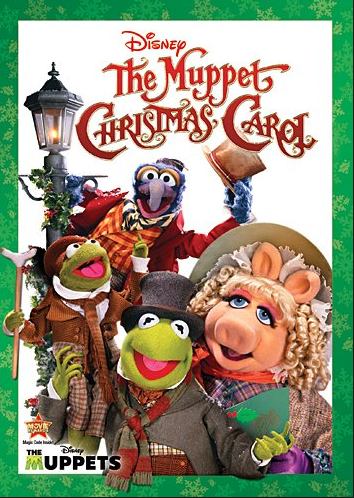
Why are there certain stories we just can’t get enough of? Why do some stories fade away while others become staples for every generation? Charles Dickens’��A Christmas Carol has been made into all kinds of movies, plays, cartoons, musicals and there are countless variations of Dickens’ original story: A grumpy old miser who is transformed by the power of love.
Dickens used symbol, theme & allegory to create enduring stories….Full disclosure. A week ago, I slipped and cracked my head open on the corner of an end-table (Did I mention I can be clumsy?) For the record, I am fine *left eye twitches*, just a big banged up and sore.
Anyway, since I couldn’t do much with a concussion, I sat and listened to the audiobook of Charles Dickens’ A Christmas Carol, which I strongly recommend.
Today, we are going to explore the many brilliant layers of a very simple and timeless tale and maybe even extract some lessons to make our own writing even better.
One of my all-time favorite movies for the holidays is The Muppets Christmas Carol. I believe I’ve seen this movie a few hundred��thousand times.
I’ve worn out three VHS tapes and at least three DVDs. I play the movie over and over, mainly because, well, duh,��MUPPETS! I drive my husband nuts playing this movie over and over…and over.
***And, for the record, Henson Productions did a superlative job of sticking to the original story.
Christmas? I’m worse than a three-year-old.Muppets aside, I also can’t get enough of the music. I love the story of A Christmas Carol no matter how many times I see it, no matter how many renditions, and I am certainly not alone.
Charles Dickens’ story of a redeemed miser is a staple for holiday celebrations around the world and across the generations.
This story is virtually synonymous with “Christmas,” but why is it such a powerful story? Why has it spoken so deeply to so many? Why is it a story that never grows old? Today, I want to talk about a couple of the elements that speak to me, because they rest at the heart of great writing.
Christmas Carol & A Little Background
A Christmas Carol is a beautiful story, but I find it’s true beauty when it’s explained in the Christian context that inspired it.��Many years ago, Toddler Spawn was watching Bubble Guppies��and they tried (dismally) to tell the same story inserting “holiday” so as not to offend anyone, I presume.
Yet, the story fell flat.
The PC had ruined the beauty of this tale and made it more of a lesson about embracing shallow commercialism once a year than a story of love’s power to redeem the irredeemable.
Thus, this post will use scriptural and religious references to explain why I believe this story is so moving and timeless.
Charles Dickens was a Christian and his beliefs are wound all through the story. To remain true to the literary intent, this post will explore the story in light of that reality.
Instead of Dickens preaching his beliefs, he created the tale of Ebenezer Scrooge. Then, through theme, symbols, motifs and allegory drove home very powerful lessons I believe we all can embrace regardless of our spiritual beliefs.
Christmas & The Power of Names
Naming characters can be vital. Great writers use the power of parsimony. Each element should serve as many purposes as possible.
A name is more than a name. It has the power to be a story within a story.
I recall the moment I was first introduced to what would become my favorite hymn, Come Thou Fount of Many Blessings. One verse stood out:
Here I raise my Ebenezer
Here by Thy great help I’ve come
And I hope, by Thy good pleasure
Safely to arrive at home.
Ebenezer? Raise an Ebenezer? I needed to know more.
Ebenezer is actually (in Hebrew) Even Ha’Ezer, which literally means��stone of help or monument to God’s glory and is referenced in the book of Samuel.
Thus, when Dickens chose a name for his protagonist, he chose the perfect name for the redeemed sinner. What is a better testament to a God of grace, than the hardened heart melted by the power of love? The current climate of political correctness aside, A Christmas Carol is most definitively a Christian story and the theme is reminiscent of Proverbs 25:22:
If your enemy is hungry, give him bread to eat
and if he is thirsty give him water to drink
for you will heap burning coals on his head
and the Lord will reward you.
Very often this verse is misunderstood.
“Yeah! BURN ‘EM! THAT’LL TEACH THEM TO MESS WITH ME! COALS! BURN BABY BUUUURN!” Yet, if one looks to the ancient Hebrew, the heaping burning coals is literally the holy fire of LOVE that melts the hardened heart so it can be remade (think of melting a weapon of war to remake it into something of beauty or a tool for healing or farming).
The path to redemption is love, for only love holds the power to redeem those who have committed grave wrongdoings. Only love can repair what’s been broken and “remake” it into something entirely new.
The Christian story is a story of love, of redemption, of second chances and not because one has earned it or deserved it.Scrooge is a dreadful man, yet as the story unfolds, not only does Scrooge’s heart begin to melt as he’s faced with the truth of who he is, but our hearts melt toward Scrooge as we travel through the past, present and future and see what has created such a embittered, cruel person. We empathize and start to have compassion and love the unlovely. We see him less as a monster and more as a person with deep, unhealed wounds.
Scrooge has done nothing to earn redemption, but his redemption is precisely why we cheer at the end.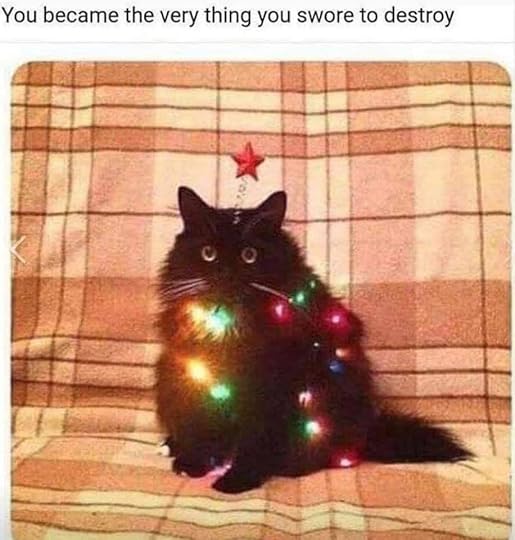
The spectral visits serve to show Scrooge the truth, which again is reminiscent of scripture; and then you will know the truth and it is the truth that will set you free (John 8:32). Scrooge cannot change what he cannot see. The three ghosts come to reveal what he’s failed to see on his own.
Repentance is not the mumbled and counterfeit “Sorry.” Rather, it is finally seeing the truth of who we are and what wrong we’ve done. It’s a decision to make things right and turn away from wrong.
By the end of the story, Ebenezer is authentically repentant. He’s a changed person determined to share the love and grace that was freely given to him when he didn’t deserve it.
Again, what a wonderful testament to God’s love. What a lovely “Ebenezer.”
Jacob Marley is another symbolic name. Jacob Marley is the name of Scrooge’s old business partner, and it is he who intervenes to try and redeem his old friend before Ebenezer is sentenced to share Marley’s fate. The name “Jacob” actually means “thief and liar.”
In the Bible, Jacob stole his brother Esau’s blessing, then manipulated, lied, stole and connived until it came back to bite him multiple times (Jacob later wrestled with an angel until he could be given a new name, Israel and eventually became the father of a nation).
What better name to give someone sentenced to roam as a specter for eternity carrying the weight of his ill deeds than a name (Jacob) that literally means thief and liar?
Christmas & the Power of Symbol
When the ghost of Jacob Marley visits Scrooge:
The chain he drew about his waist was clasped about his middle. It was long and wound about him like a tail; and it was made (for Scrooge observed it closely) of cash-boxes, keys, padlocks, ledgers, deeds, and heavy purses wrought in steel…
Why cash-boxes? Or legal deeds? Why purses?
In life Jacob was a money-lender. He was ruthless in his dealings and never forgave a debt. Yet, Matthew 6:12 (part of The Lord’s Prayer) reads: Forgive us our debts as we have also forgiven our debtors.
Jacob forged his chains in life. He refused to show mercy, compassion, or kindness. He was ruthless and legalistic, thus he has sealed his fate. God has promised to forgive us the same way we forgive others, which is why the scripture pleads for grace, compassion and mercy. Also, forgiveness of debts is the heart of what Christmas is about, for unto us a child is born.
Christians believe God sent His only begotten son (God in the form of Man) to pay a debt we cannot hope to pay. God loves us as His children, and our actions have left us hopelessly out of our depth, incapable of paying our debts.
Yet, Love cancels the debt.
Christ’s last words on the cross, “It is finished” uses the word tetelestai.
The word��tetelestai��was also written on business documents or receipts in New Testament times to show indicating that a bill had been paid in full.
Bible.org
Jacob Marley turned away from the grace freely offered, so now he wanders, burdened forever by the debts he cannot pay.
Jacob now finds opportunity to warn Scrooge of the chains he is now forging with his actions (and inaction), chains that are longer and heavier than even his. The only way for Scrooge to free himself is to learn to value himself and his fellow human beings.
Smaller Truths Reveal Larger Truths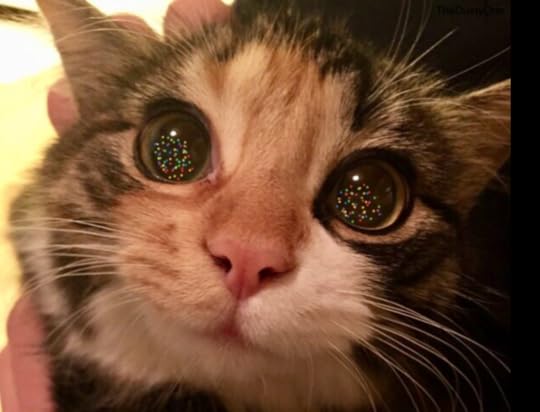
Dickens makes it a point to show us that Scrooge is a miser. Scrooge shows no mercy, has no warmth, shares none of his wealth…with anyone, including himself. Scrooge is a very wealthy man, yet he wears old clothes, lights no coals for warmth because coal costs money. His home is threadbare and his food measly and meager.
The full story of redemption is that Scrooge not only sees his fellow man differently—worthy of compassion, love and generosity—but in changing how he views his fellow man, his view of himself changes (and heals) as well.
The three spirits not only heal Scrooge’s relationship with his Maker, but with himself and others. Scrooge, for the first time, becomes part of the human experience, no longer content to be “solitary as an oyster.”
Christmas & the POWER of WORDSThis point should resonate particularly with writers. There is a REASON the Ghost of Christmas Future refuses to speak. Words have creative power. We authors should grasp this better than anyone. We use combinations of 26 letters to create worlds, people, places, technology, other dimensions, religions, races, and on and on.
SPELLing, anyone?
If one looks at the first chapters of Genesis, God created the heavens and the earth and all living things by��speaking. “And God��said���”
He only breathed life into humans. God spoke everything else into existence. Throughout the Old and New Testament, there are countless scriptures referencing the power of the tongue, of words, and warning they carry both the power of life and death.
This idea carries into Ebenezer’s story because, by the time he has this final visit, he still has choice over what his future will be. The specter��cannot speak because words would cast Scrooge’s future and thus render it unable to be changed. Scrooge’s fate isn’t for the Spirit of Christmas Future to decide; it is up to Scrooge.
Happy Ending
Scrooge deserves the death he’s shown by the Spirit of Christmas Future. He deserves to die alone with those “closest” casting lots for his garments. This is what he has sown with his lifetime of greed, hate and spite.
Yet, he is pardoned.
Scrooge is the resurrected heart, the dead brought to life. When God promises “everlasting life” it isn’t a promise that we get to float around on a cloud in Heaven after we die. Rather, it’s a promise that life begins at the moment we decide to accept His divine mercy and love.
Scrooge has been “alive” but not “living.” He was existing. When he is redeemed, given a new chance, he decides to change. Out of gratitude for the mercy he is given, he reaches out to give what he’s been given. LOVE, MERCY, GENEROSITY.
Christmas & Restoration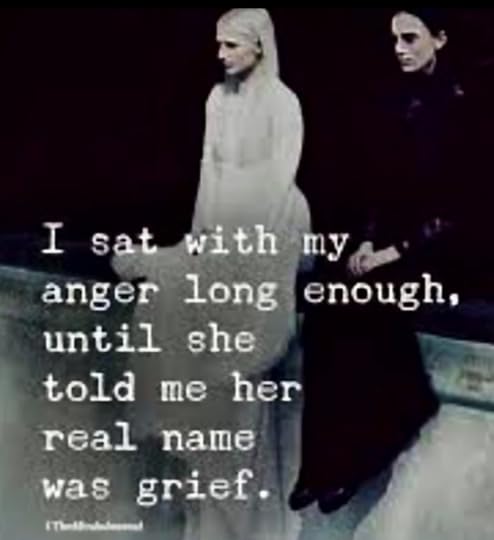
Sure, God could have rained down a miracle that healed Tiny Tim and landed Bob Cratchit a better job with a better boss, but Dickens saw God as a partner with humanity. He saw God in the business of finding and changing the lost, miserable and broken. Instead of giving the miracle to Cratchit and his family, God, instead, gives it to Scrooge, the least deserving of a miracle.
Why?
Because God is about working through people. Many of His miracles come from ordinary people performing extraordinary acts of kindness and sacrifice. By changing Scrooge, God could create a man who would become a benefactor. Scrooge got a miracle only to become a miracle for those around him.
If you read the book, you see a lot of why Scrooge is “angry.” He’s actually never dealt with deep losses and he failed to grieve. When his experiences with the three spirits remove the scales from his eyes, he then can heal that grief and ipso facto, let go of his anger.
Cratchit now has a kind and generous boss, the community now had a passionate philanthropist, and Tiny Tim lives. The family thrives because one man’s heart could be melted.
It is no great feat to love the lovely. If you love only those who love you, what reward is there for that? Even corrupt tax collectors do that much (Matthew 5:46). This story is so powerful namely because it shows that every human has value and is worth and an opportunity for redemption.
Christmas is About Love
God is in the business of changing hearts, and Dickens wanted to show that. A Christmas Carol��is a masterful exploration of the true nature of Christianity, what it��should be, what it��was meant to be. Love. Above all.
It is also a brilliant explication of what the Christmas season is really all about. It isn’t the commercial nonsense, the “stuff” the parties and gifts. While those can be great, they are empty without love as the driving force behind them.
Christmas can be a very hard time of year for many people, myself included. So maybe we can take the lessons from “A Christmas Carol” to remember to give ourselves grace, love, compassion, and forgiveness. For when we allow these INTO US, all these can then flow through and from us as well.
Grieve what we’ve lost, then embrace and be grateful for what we have. Joy is a decision and so is love, which can be a super tough thing to remember.
Happy holidays and Merry Christmas! Sending love to all of you who keep me going day after day and year after year.
I LOVE Hearing From YOU!Which is your favorite version of A Christmas Carol? What do you love about this story? What is your favorite part? Do you now see the story in a different light than previously? I find it incredible how much Dickens packed into such a short story.
*sings Marley & Marley*
What are other Christmas movies that resonate with you and why? Can you see the symbols and themes that make those stories so beloved?
The post Writing Lessons from “A Christmas Carol” appeared first on Kristen Lamb.
December 6, 2023
Meltdowns: Chaos & the Neurodivergent Author

Meltdowns, frequently referred to as “autistic meltdowns” actually happen all along the ND (neurodivergent) spectrum, meaning ADD and ADHD people are certainly not immune. And, if you read my last post Neurodivergent Authors: Not Lazy or ���Broken,��� I expressed my fairly educated hypothesis/concern that many creative professionals likely fall somewhere along the ASD spectrum.
What does this mean?
Probably a lot of folks who read this blog have spent years attributing their irritability, stress, and possibly even full on implosions/tantrums solely to being introverts, unaware there are other neurological factors in play.
Factors, that, for the record, are completely manageable once we become aware of them.
For years, I had people around me accuse me of having an anger problem. While there were certainly times in my life this might have been applicable (I AM human), it didn’t always apply.
I’d be fine, fine, fine, less fine, not fine, red-lining then BOOM!

Often it might begin as generalized anxiety/irritability then would shift into me getting curt and (seemingly out of nowhere) BOOM! Crying, hysterical, threatening to live in my blanket fort forever and ever and everyone sucked eggs and needed to leave me alone lest I leap off a water tower.
What? I’m a writer. We can be dramatic. And they ARE called “meltdowns” not “fluffy kitten pillow-downs.”
***Though NOT ALL ND people have the same KIND of meltdowns. Hubby is autistic and he just shuts down. Seriously. Ctrl Alt Delete doesn’t even work. He says nothing, does nothing and just goes into a mental cave that even DYNAMITE doesn’t work on.
Understand Introversion vs. Extroversion
Before we go any further, I would like to clarify a point because I see this misused all the time and it makes my left eye twitch. Social anxiety is NOT the same as introversion.
The ONLY difference between an introvert and an extrovert is how/where you gain/lose energy.
PERIOD.
If you need to be around people to charge your emotional batteries and being alone too much drains you? Then you are an extrovert. And likely an author who really LOVES writing in bustling coffee shops #KillMeNow.
Conversely, if you require alone time to recharge and being around people drains you, then you are an introvert. Whenever I speak at a conference I am probably one of the most high-energy speakers you’ll ever see present. I love people, enjoy getting and remembering everyone’s names, want to hear all about your life, hopes, dreams, stories, setbacks, and brownie recipes.
YET…
Whenever I get home, I have to slip into something more comfortable…like a COMA.
There are people with severe social anxiety who love to hang out in mosh pits or stand with a drink in a crowd of five hundred people listening to live music.
And, as I just mentioned, there are people like me who never met a stranger and could talk the ear off a brass monkey…but we NEED downtime lest we crash.
Most people (who are not locked up in an institution) are actually ambiverts. It is pretty rare to have a pure extrovert or introvert.
For more on this, go to: Myth-Busting���The Real Difference Between Introverts & Extroverts & Meet the Ambivert
Meltdowns & Are You REALLY an Introvert?
Again, most people will be some mixture of introvert and extrovert. The far ends of the bell curve usually cannot function in society. This said, if you go back to my last post I talked about autism.
To reiterate, “If you have met one autistic person, you have met ONE autistic person.”
To grossly oversimplify autism, it is a sensory processing disorder. For me, the world is brighter, louder, itchier, yuckier and far more chaotic than it is for “normal” people (a.k.a. Neurotypical or NT). NT people don’t have a fit wearing a headband, or go bananas because there…is….a…tag on their shirt…that…KILL IT WITH FIRE!
The sheer levels of energy it takes for us ND people to “appear” normal could power a small city. This is why, to a degree, I am all for CBT (cognitive behavioral therapy). I “get” that the world cannot always accommodate me and I have to learn some workarounds and to TRY to fit in the best I can.
That said? The rest of the world can learn some compassion, too.
Hey, we did it with left-handed people! Just give them a special notebook instead of beating them with rulers and telling them they were demon spawn.
Evolve.
Where was I?
Yes, the world is a very over-stimulating place for ND people. Meaning, we “might” be extroverts and it is just the fluorescent lights, the traffic noise, the constant binging on the phones, the noises on the computers, the AC going on and off and on and off and WHAT IS WITH THAT GUY WITH THE LEAF BLOWER?
So, just a thought. You might be an introvert, might not. Doesn’t really matter after you read all of this anyway.
Meltdowns: What is Going ON?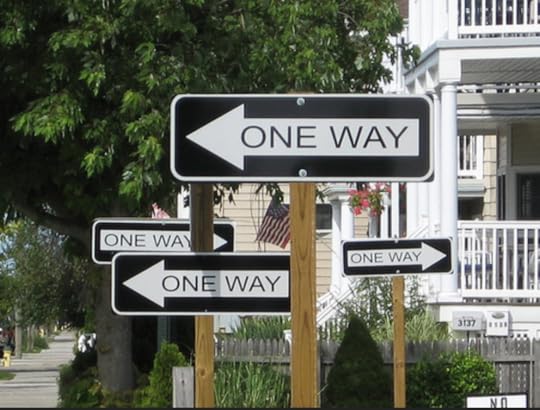
Back when I struggled with what I didn’t know at the time were autistic meltdowns, I was VERY bad about being self-aware of a) how stimulated/overstimulated I was b) how tired/overworked I was and c) that I needed to do better pre-planning.
When I found out about autistic meltdowns, I also uncovered The Spoon Theory.
The theory suggests that people living with chronic illness, chronic pain, or disability have a limited amount of energy (represented by spoons) to spend on completing tasks on any given day. This means people living with chronic health conditions have to make many difficult, energy-consuming choices about how to spend their limited energy.
Michelle Pugle VeryWellHealth
Anyone who’s followed me any length of time knows that I am a giver. I LOVE to give. I’ll take a call, run an errand, help a friend, teach a class, crochet for the needy. You name it? SIGN…ME…UP.
Or not.
This could just be me (and I also can blame the ADHD and OCD) but I tend to have terrible self-awareness. Why? Because I am paying SO MUCH ATTENTION to the world around me.
Social cues? What are those?
I have to put so much energy into reading the room and “fitting in” that all my energy can end up directed outwards.
Y’all have NO IDEA how many sticky notes are fluttering inside my head.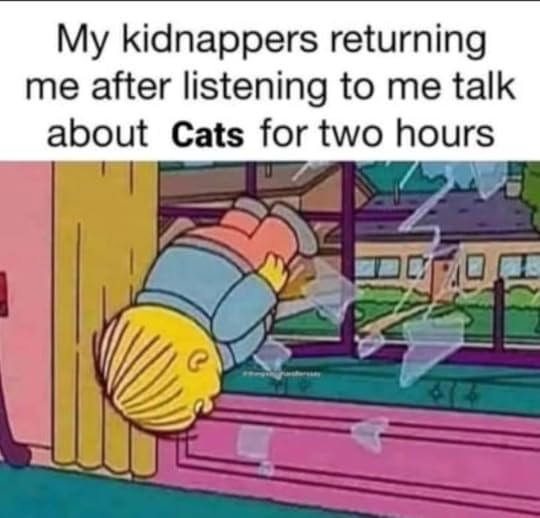
Kristen, let other people talk.
Take turns…wait for it….wait for it….
LISTEN to what they are saying to you.
Where is that leaf blower noise coming from?
Don’t say the thing everyone probably thinking but will get you in trouble (again).
Is that joke appropriate, or a good way to get a visit from HR?
Why did I HAVE to wear HAIR CLIPS? I can feel my BRAIN.
Use your hands to gesture so you don’t look like a robot.
BACK UP! ABORT! Too much hands! ABORT!
Her outfit is nice but not nearly as nice as the one she wore three weeks ago. It was blue and I normally don’t like blue….
Kristen, let them leave. Make friends don’t take hostages.
What was the topic? FOCUS.
Don’t be weird. Don’t be weird. Don—DANG IT! You HAD to talk about the Black Plague, didn’t you?
Maybe no one here can relate, but you can write characters who DO.
Only So Many Fu-Spoons to Give
Moving on…
Though obviously I recommend the link above, The Spoon Theory applies to anyone who is dealing with chronic pain, a chronic illness, dealing with grief/loss, or who might have sensory issues like those of us in the Special Unique Snowflake Fruit Salad that is ASD.
To give you the gist, we only have so many spoons of energy and it is wise for us to a) plan how to use them b) be aware when we are using them and c) take time to get away to refill them.
For instance, I can be accused of a lot of things, but lazy is not one of those things. When I took a good look at my Things To Do List? Let’s just say it or I was just a little bit…insane.
Since I have worked from home for over 20 years, I had (and still have) zero idea what might be “normal,” let’s just say “normal” not my wheelhouse.
Those who know me will tell you I can be mostly dead and will push through anyway (frequently to the detriment of my health). At least this was the case until recently.
Before I realized what a flaming idiot how foolish I was being, I felt I just needed more willpower. I had no concept that not only was my list too long, and my standards to high, but that I needed to chill…the hell…OUT.
I was having meltdowns because I struggle with admitting I even have limitations, let alone living within them. The ADHD means I use lists and timers to stay on task and the OCD tells me I must do all the things…perfectly.
But, I am improving.
Example One (LIFE):
Yesterday, I recruited Spawn (14 year-old son) to help me detail the bathrooms. I had to clean out 10+ years of detritus that had collected under and in cabinets because the clutter was wrecking my ability to quickly and easily keep things clean and organized.
***For the record, the picture above is NOT my bathroom, merely how my demented/perfectionist mind THINKS my bathroom looks.
Anyway…
Not only did I ask for help (WINNING!) but I also stopped after the bathrooms. Normally, my ADHD self would have had to put something into the closet, seen THAT was a mess, pulled all of THAT out and…BOOM!
Meltdown.
As I say often about writing:
Perfect is the enemy of the finished.
I’m learning that, if I wish to go more granular on my organizing/cleaning, I can. On another day. Trust me, the junk will still be there. And, if I pace myself, I can do a little every day and keep that junk from having babies.
Example Two (WORK):
Though I didn’t yet have an official diagnosis, back in May when I went to speak in Boise, ID, I operated off the idea that I was, in fact, ND.
My presentations often are slotted at either the beginning of the day or the end of the day. The reason? I put off so much energy, I get people HOPPED UP! I make people laugh and move and participate and it is a lot of fun.
That said, I attend other speakers’ presentations out of professional courtesy, and also because I don’t know everything.
I know! *shock face*
Anyway, on Day 2 of the conference, I’d been traveling and walking and speaking and paying attention and then lunchtime came. My presentation was at like 2:00 (when everyone needs a NAP, me included).
I walked all the way from the conference center to the bustling restaurant before it hit me.
I was exhausted.
Any other conference, I would have ignored all my sensors flashing RED, gone in and socialized with all the writers, despite the crowds, noise and lights.
***Refer to visual representation of Kristen in image above.
This time? I did what I’d never done before and told Troy Lambert (my friend and co-author of our anthology WTH Did I Just READ?) I needed a “time out.” I walked all the way BACK to the conference center then sat alone in my noise canceling headphones and regrouped.
This was the ONLY conference in 15 years that I made it home perfectly healthy. Since I kept a better eye on my energy levels, I didn’t tank myself.
Also, when everything that could go wrong DID go wrong in my presentation (with the technology)? I held it together and was able to stick-and-move. Had I not recharged, it would have been a disaster.
Meltdowns: Other Issues
We might be having meltdowns because we’re overstimulated, overtired, etc. etc. Yet, here is another insidious problem we might have a harder time dealing with.
Learn to set boundaries and enforce them.
I tend to be far too accommodating for my own good. I’ll set a boundary then, when others stomp all over it, I tell them it’s okay.
No, it isn’t.
When I do that, not only am I saying my time/space/boundaries have no meaning and it is okay to walk all over me, but I am ALSO confusing those around me with mixed messages.
Say, I need to write and I tell my family to leave me be until noon. They keep walking in and out and asking for things and for me to make nibblies and to ask me a question and I am all, “No, it’s fine, it’s fine, it’s fine, it’s fine, it’s….
*Kristen grows 25 feet, morphing into LAMBZILLA*
I WILL THROW YOU IN THE ENDLESS PIT OF LEGOS AND SUFFERING IF YOU INTERRUPT ME ONE MORE TIME!
Unfair to me, and confusing and unkind to others.
And, if you’re ND, then wobbly boundaries almost guarantees regular meltdowns.
Meltdowns and the Holidays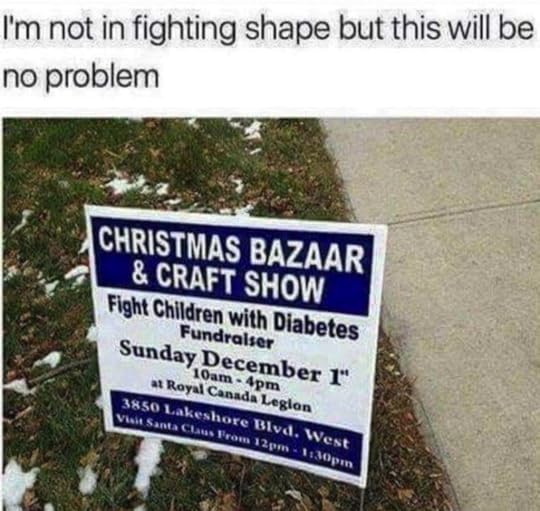
Tis the Season to Go Psycho…
The world is far more fast-paced than ever in human history. It is also unsustainable, but that is another post. In the meantime—until SkyNet comes for us—we are going to have to be intentional.
I still have a day job writing and editing. I’m also a housewife who does all the shopping, cooking and cleaning. Additionally, I homeschool a 9th grader. If Santa Claus came down my chimney any other year I might have set his beard on fire.
Spoooons.
This year, now that I know better? I am only putting out so many decorations, only giving so many gifts, and instead of singing Fa-La-La-La La? I’m saying NO, NO, NO, NO, NO, NO, NO, NO, NOOOOO!
Sort and prioritize. These are the SUPER important things and worthy of spoons. This stuff? A maybe. That stuff? Only if I have enough spoons.
Lest I end up hiding in a festive blanket fort weeping, washing down raw sugar cookie dough and sprinkles with a bottle of real eggnog…
What are Your Thoughts on Meltdowns?Meltdowns…not just for toddlers anymore. Did you understand what it really means to be an introvert/extrovert? Were you possibly blaming a bit too much on being an introvert? Do you SUCK at being self-aware/doing self-care?
If you do have meltdowns, are yours the thermo-nuclear-everyone-get-under-that-50s-school-desk kind? Or are you like my husband and just kind of short-circuit and need time to reboot? Maybe somewhere in between?
Have you ever heard of The Spoon Theory? Any other suggestions, thoughts, ideas?
Here is a video from a gal I watched before going through the official diagnosis process. Obviously not all ND people are the same, but what she talked about SO SPOKE to me (enough to where I made sure to get professionally tested).
Maybe this will help you or someone you love, OR hey we need more ND characters so here is a peek inside our heads…
The post Meltdowns: Chaos & the Neurodivergent Author appeared first on Kristen Lamb.
November 22, 2023
Neurodivergent Authors: Not Lazy or “Broken”

“Neurodivergent” (ND) has been a bit of a buzzword for the past decade, and even more so in the past couple of years. Seems like everyone is “neurodivergent” these days, like we are coming out of the woodwork.
Yes and no (a post for another day).
I’ve been hesitant to talk about this topic for a number of reasons, largely because it puts me in a super vulnerable place. Not easy for most people, and I’m certainly not immune.
Additionally, I “get” I’m not an expert beyond my own experiences, so take the post for what you will. I feel that the qualities that make us “neurodivergent” are what make many of us gravitate to creative professions in the first place—writing included.
Being neurodivergent can give us major advantages.
However….
The challenges that go with being neurodivergent can also hinder many of us from ever seeing meaningful success.
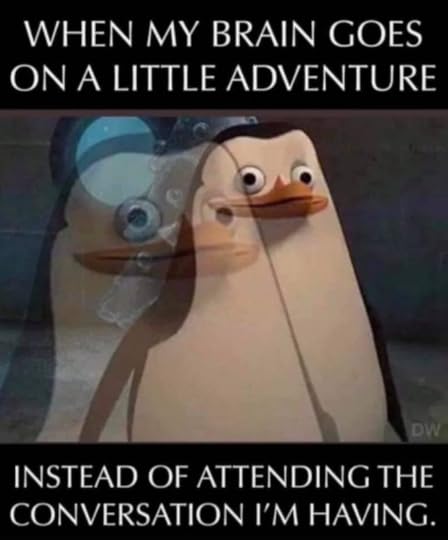
For instance, as a writer, I can tell you I’ve listened to 500 audiobooks in the past 4 years. Many of those titles I’ve listened to in excess of 20 times.
There is NOTHING “NORMAL” about this.One of my particular quirks (being autistic) is to learn absolutely everything possible about the topic du jour, which is GREAT. When I write any book, whether it is fiction or non-fiction, I am a veritable encyclopedia of information.
I easily make connections others do not, see patterns others might miss (ADHD). Then, I obsess (the OCD) until it is….SQUIRREL!
Friggin’ ADHD.
Being transparent. Today’s post is longer than usual.
But you and I BOTH know everyone skims, so just roll with it. Pick and choose what might apply to/help YOU.
Or read EVERY word because do you really want to be cleaning right now?
I didn’t think so. So read it twice.
All kidding aside, this post will be divided into two parts. In PART ONE, we will go over what I mean when I say “neurodivergent” and a bit of MY experiences, which you might relate to…or totally want to skip.
No problem.
PART TWO is more “general application.” We’ll cover what it’s like being a neurodivergent author, your strengths, weaknesses, and some tips and tricks to navigate this brave new weird world.

Being “neurodivergent”—to use super broad strokes—simply means our brains process information…differently. Can this be a “disability” or a “handicap”? Sure. Autism can be so acute the person cannot function outside in the real world (E.g. Rain Man). But not ALL neurodivergent people (or autistic people) are Rain Man.
I explain it to my son this way. For the most part, autistic people are an Apple OS in a Windows OS world. Is it a “disadvantage” to have a Mac OS?
Ask anyone who’s ever tried to find a connector for their Apple laptop so they could do a Power Point presentation….
YES!
It can be a hassle, much like my husband’s Android phone fits nicely in the charging cubby in our SUV…whereas my iPhone needs a special “certified” Apple cord, a detailed horoscope, a blood sample, three letters of recommendation, a credit check and a cosigner.
And yes, we will be mixing metaphors more than a 90s DJ today, so just roll with it….
Ice Ice Baby!
FOCUS.
Impairment: Tis a FLESH WOUND!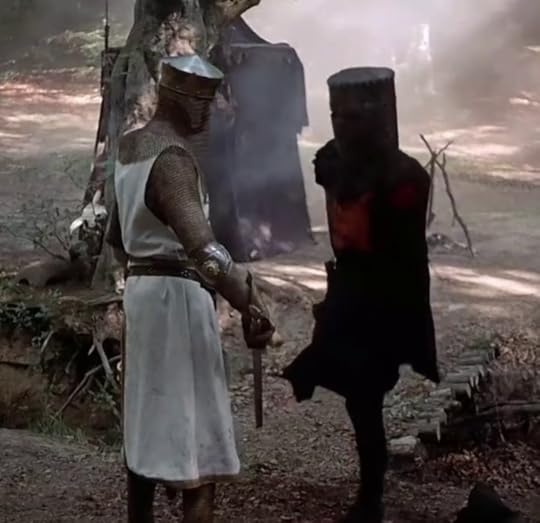
When one claims any impairment due to being neurodivergent, this can be akin to claiming to be visually impaired.
If I am visually impaired, this can mean anything from I need 1.00 reading glasses to see the directions on a pill bottle to I was born without EYES! It might mean I am colorblind, have nystagmus, macular degeneration, damaged corneas, retinal tears, glaucoma, Sjogren’s Syndrome, etc., etc.
In fact, with visual impairment, I might have a combination of these problems (as well as ancillary, but related issues, such as diabetes or cardiac problems).
When someone says they’re visually impaired, this does not by default, mean they have a seeing eye dog, read only by Braille, and have no lights in their houses…though they might.
Same with being Neurodivergent (or autistic).
The Neurodivergent “Fruit” Salad
My journey to a diagnosis has been a LONG one, for a number of reasons we’ll discuss another time. Suffice to say that a lot of conditions are listed on what is referred to as the Autistic Spectrum. According to Harvard Health:
The word neurodiversity refers to the diversity of all people, but it is often used in the context of autism spectrum disorder (ASD), as well as other neurological or developmental conditions such as ADHD or learning disabilities.
By Nicole Baumer, MD, MEd, Contributor, and Julia Frueh, MD, Guest Contributor
Autism often comes paired with other conditions, such as ADD, ADHD, generalized anxiety disorder, dyslexia, ODC, and so on and so forth. We have a “cluster” of issues.
It is possible to be autistic, and have only say, one comorbidity (E.g. ADD). But, it is just as likely one might have several, or NONE.
There is a saying, “If you’ve met one autistic person, you’ve met one autistic person.”
We are all a Special Unique Snowflake Fruit Salad, yes. This is a huge part of the challenge many of us face. What combination of weird are you? Still weird, just different weird.

*me clutching pearls* circa 2019
Autism never once crossed my radar. I’d pretty much accepted I was probably ADHD (and most definitely weird). Anyone who’s met me five seconds can see that. But autism? PHSAW!
Then, in 2019, I happened to be the main keynote at a large conference in West Texas. A lovely older author (who was a professional psychiatrist by trade) came up to me after I presented. She told me she thoroughly enjoyed my teaching but she wanted to suggest something, but was worried I’d be offended.
I assured her I had rhino skin.
Her: “Just listening to your anecdotes and watching you, have you ever considered you might be a high-functioning autistic?”
Me: Err? Whah? Pshaw! Seriously?
Her: Autism presents very differently in females and is extremely hard to diagnose because women are better at “masking.”
Me: What’s “masking”?
And thus began a long and painful journey. My entire life, I just thought I was annoying, picky, lazy, high-maintenance, crazy, wasn’t “trying” hard enough, etc. etc.
By about 2022, however, it was becoming painfully obvious I could no longer “outwork” my “disabilities.” I would have to approach things differently unless I wanted to be washing down Oreos with a bottle of tequila.
I go into this more in a previous post Neurodivergent: Being ���Different��� in Life & Fiction.
My Autism Side
I never really played as a child as much as I “organized” things, whether that was my 10 gazillion stickers, my favorite books, or my Barbie collection (clothes by size, by era, or by color?).
From a very early age, I was a “collector” whether that was Barbies, all things Strawberry Shortcake, My Little Pony, series of books, a brand of pen, a certain series of notebooks.
Lisa Frank? I had ALL…THE…THINGS. Stickers, notebooks, spirals, erasers, pens, calendars, backpacks, posters, etc.
GOD HELP anyone who colored in MY coloring books.
If I played pretend, usually it involved forcing younger children to be students while I was the “teacher.”
***For the record, my little brother still has superlative penmanship and is a voracious reader of all the literary classics.
For me, teaching myself Conversational Swahili using Berlitz tapes from the library or making chlorine gas with that new Chemistry set (TOTALLY AN ACCIDENT) was “play” and “fun.”
Whenever I discovered something new, I had to do/learn ALL THE THINGS about whatever. I BINGED.

True, I struggled to make eye contact when I was young. BUT you get smacked and punished enough and you learn really quickly that eye contact is a big deal to adults.
Since I always struggled with social anxiety, I learned to “mask” by being funny. I was terrible at reading social cues but I could (mostly) cover that up by being “clever.” I remember watching all the great comics, studying their timing, their lines and yeah….
People are less judgy if they’re laughing.
Enough said.
Sensory Issues
As a kid, I refused to wear pants, tights, anything with elastic, or itchy zippers. Often, I tore my clothes apart because I hated the tags, any scratchy fabric (when corduroy was all the rage), wouldn’t wear clips in my hair (gave me headaches), refused headbands (gave me headaches), or hats (yes, gave me headaches).
My mom always bought me the exact same brand of shoes. Always. Maybe change the color, but not the brand. Though my grandmother would buy me other shoes, I’d wear the Buster Browns until…they…DIED.
I had the same shampoo (Johnson & Johnson), the same perfume (Baby Soft, duh), and watched the same movies. To this day, I can pretty much recite “Labyrinth” from memory (and “Grease”, “The Holy Grail”, “Stripes” and “Robin Williams at the Met” and WTH were my parents DOING?)
Anyway…
I’ve always preferred dark/dim lighting, and struggled in school with the bright/fluorescent lights. Mom (who we now know is also ND) never minded that I basically read by candle light (in a tutu, upside down surrounded by my favorite sticker books).
Additionally, I have such super sensitive hearing that it’s caused me terrible sleep issues most of my life.
***I now sleep in noise-canceling head phones because YES, I CAN hear spiders fart.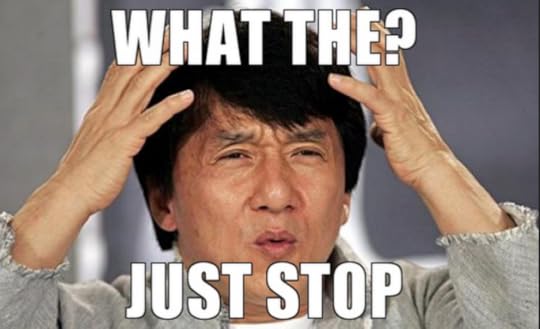
I loved the same records and am rather shocked my mother didn’t murder me for playing the same FIVE records SIX HUNDRED times a day.
Every day, I packed the very same lunch (peanut butter and honey, cut diagonally and an apple). If we went out to eat, I ordered the exact same thing. If my mom cooked the same meal every night? I was in heaven (and she frequently did cook the same meal every night).
I had the same routine, hated any kind of change, and functioned best when everything was clean, orderly, and organized. In school, I believed in following the rules and fell apart when others didn’t follow the rules.
And teachers who felt the need to be clever and “change up” the seating arrangements?
What is WRONG with YOU?
Not Much Has Changed
I still eat the exact same foods and wear the same clothes. If I find a shirt or pair of pants I love? I buy all of them…in all colors…and wear them until they DIE (and maybe a little bit after death).
I don’t want a new perfume, I want my favorite (thought they keep GETTING RID of my favorites and then I need to find a NEW favorite). When I go out to eat, it is always the same couple of places and they already know my order.
I listen to the same songs (or genre of songs) until I burn myself out, then cycle to my next fave and repeat.
Every morning is the same routine and if anything disrupts this? God help us all.
When I used to take hot yoga, I’d get there 30 minutes early to get MY spot. Right in front so I could see the instructor’s face in the mirror. In the far left corner by the windows so I wasn’t hemmed in on all sides by people.
If anyone got in my spot before me? All I could feel was incandescent rage for two hours…
OHMMMMM….you’re in my spoooot…..you psychopaaaaaath…..I hope you dieeeeeee….
I’m much better now *left eye twitches*
MY ADHD Side
THIS is where things get jiggy, because as anal and rigid as I can be, my brain is ALSO an explosion of ALL THE IDEAS. I see patterns in everything. Chaos is my middle name.
Back to those 500 Audible titles? I listen while cleaning, cooking, crocheting, painting, and gardening. It is pretty much impossible for me to do ONE thing at a time.
Kid you not. I’ve been learning Mandarin since April, because doesn’t everyone just decide to learn one of the world’s hardest languages solely FOR FUN?
I will literally be doing a Mandarin lesson, while crocheting and watching television and answering my husband’s questions.
And I CAN do all these things at the same time.
Though this is also how my cellphone ended up in the fridge…and we just don’t need to talk about that.
These 500 audio books are on top of paper books and ebooks and no I don’t have a problem, DO YOU?
Well, PUNK? DO YOU?I thought not.
Anyway, as obsessive as I am about order, I can never seem to maintain it.
*openly weeps*
I am very much my own worst enemy. For those on WANATribe, we have been doing writing sprints every day all day (M-F) for like nine years. I pay NING $65 a month to basically maintain focus using peer pressure and timers.
If I put items in a box to “organize,” those items (to me) cease to exist once the lid closes. I need shelves or clear boxes. As brilliant as I think I can be, I am also…an idiot.
My mind is a whirlwind of ideas and facts and tangents and plot bunnies and, and….
PART TWO: Neurodivergent CreativesWhat Does This Have to Do With Writing?
This is a totally unscientific guess, but I imagine many of you reading this blog (who are usually writers) probably were laughing, nodding, or maybe crying at a lot of this post.
As I’ve said many times before, if you are a writer, you are NOT NORMAL. The NORMAL SHIP sailed without us a long time ago. A lot of ND people gravitate to writing, but we might also struggle to be successful at it.
Ironically, the very things that make us ND can also make us superlative authors, which we’ll go over. Take heart.
Neurodivergent Authors: Autism and Writing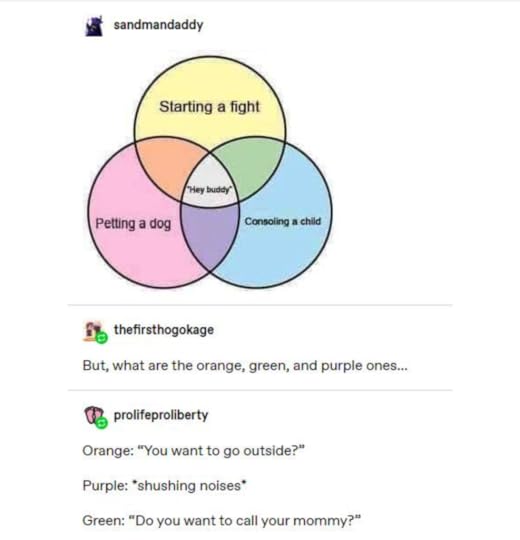
For instance, those of us who are on the autistic spectrum? We’ve literally made it our life’s mission studying human behavior. How do humans interact? What is this body language thing (that we clearly keep MISSING)?
We’ve read books on behavior, read fiction, watched movies, and parsed every tiny interaction. We can be masters at imitation in life and writing, which can be good and bad.
I told jokes for YEARS that had people in stitches, and I had literally NO idea what was even funny…just that people laughed…all the way up until HR talked to me.
So, if you’re autistic, you possibly excel at supreme focus, in depth studying, and understanding/explaining certain subjects in amazing (okay, excruciating) detail.
Just remember that not everyone wants to talk about serial killers, the Black Death, or the evolution of Medieval torture devices at that holiday party.
Unless it’s a holiday party with writers, then you’re probably going to be popular for the first time in your life.
Here are some challenges that I (personally) have found as an autistic writer, so again, I AM NOT A PSYCHIATRIST, I just play one on the internet.
Beware of Too Much Detail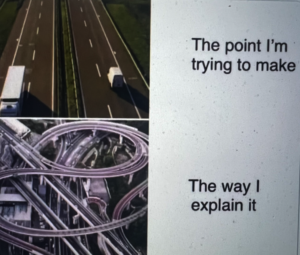
We get SO excited about our world, our technology, or describing the world around us down to the molecular level that we can lose the reader.
Readers want stories about PEOPLE facing adversity. If they want a gazillion pages of pure information, they’re over on Reddit or “correcting/adding to” Wikipedia.
Learn to BEND
Flexibility is your friend. I KNOW you so want to go down that research rabbit hole but STOP. I am here to save you from yourself.
If you are writing your novel and realize you don’t know how to describe, say, a fishing boat, feel free to type INSERT COOL DETAILS ABOUT FISHING BOATS HERE LATER.
Then finish your story (again, that thing about people) and when you are resting after that draft, read all things “commercial fishing” and LAYER those details in later.
I have a writer who started out as a commenter who’s become a lovely friend. He hired me to look at why his sci-fi series wasn’t selling. There was no doubting his work ethic. He had like 15 books at the time.
But, I was only a couple chapters in and saw the problem. Magnificent world-building…but he kind of forgot to focus on the people and their problems (and no shocker, he is ND).
Once his recalibrated his focus? A MILLION TIMES BETTER!
It’s an Outline, Not a Suicide Pact
Many autistic people can fall into being planners and plotters, which is fabulous, unless this rigidity is keeping you from exploring your story in a deeper way.
Stephen King talks about the “boys in the basement.” I can personally attest my subconscious has come up with MUCH cooler stuff than I ever could have planned out ahead of time.
Yet, I will say (largely because I was “overcorrecting” for being ADHD) I’ve had times I refused to change course because I was terrified of being “a flake.” Which is all well and good except when your course is taking you off a CLIFF!
Neurodivergent? Be Mindful of Energy Levels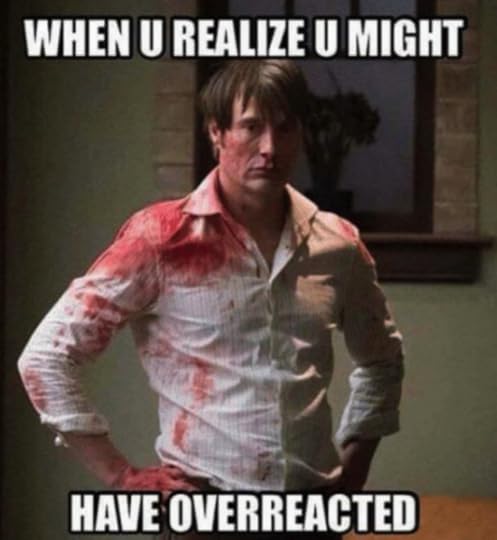
This actually applies to the autistic as well as other “fruits” in our Special Snowflake Fruit Salad. We can become so engrossed in whatever that we fail to keep in touch with how tired, hungry, or stressed we are.
If you add this on top of the exhausting effort it takes to “appear normal” it is a LOT.
Remember the kind psychiatrist who hinted I “might” be autistic? And how I had no clue what “masking” was?
There was a good reason this took time to discover.
It is because it’s only very recently that the psychiatric community is even admitting ADULTS can be autistic, let alone WOMEN.
*more clutching of pearls*.
Let’s say there just hasn’t been all that much out there until recent years.
But back to masking.
All my life, I struggled with being “fine, fine, fine” then something small/stupid happening—I can’t find my favorite pen—that would absolutely DERAIL me and leave me a hysterical raging mess of tears, snot and apologies.
I had no clue what was causing this (Hint: it’s called an autistic meltdown and applies to most neurodivergent people).
Case in point:
Early this year, I had a professional appointment. No one “mandated” I bring copies of my resume, but why be prepared when you can be OVER-PREPARED?
Suffice to say, my mom had just had surgery, I was trying to get over Whooping Cough, was homeschooling a gifted 8th grader, we’d just had a death in the family, and so I…delegated.
Normally, I would have checked what my husband printed, but I thought, “Kristen! This is you being a control freak. It’s FINE!”
Yeah.
When I opened my leather portfolio in the meeting, to my horror, I realized Hubby had printed all of my pages…crooked.
And in the wrong order.
With the headers cut off.
Good news is Hubby is alive and I am not in jail (or even on bail! Go me!).
I’d yet to learn about the Spoon Theory of Autism (and this also applies to anyone dealing with chronic issues, pain, etc.)
I only have so many spoons of energy until I need to withdraw and regroup…or BOOM!
Now, for Neurodivergent ADD/ADHD Writers
I’ll be the first to admit that I went to extreme lengths to avoid any formal diagnosis. To me, it seemed that too many people were using autism, ADHD/ADD, etc. as an excuse for bad habits, poor character, obnoxious behavior and to be willfully lazy.
***Don’t shout me down, that was MY opinion at the time (and still a little today).
Back in college, I was engaged to a brilliant man who quit halfway through a PhD. He actually quit most things, which was largely why we didn’t work out. Years later, I ran into him and he asked what I was doing. I told him I was a writer.
Him: I’ve always wanted to write a book, but I am way too ADHD.
Me (inside voice): No, you’ve never written a book because you lack the discipline to finish what you start.
***I’m actually much better at the inside words staying inside thing.
If you are ADD/ADHD, you can be a fountain of creativity. You see patterns in everything and make connections others don’t see…until you point them out. Your innovative way of seeing the world can make you a groundbreaking author…
…if you just sit and FINISH.
Remember, if this applies to you, I have one finger pointing at you and the others all pointing at ME.
ADD/ADHD Needs Structure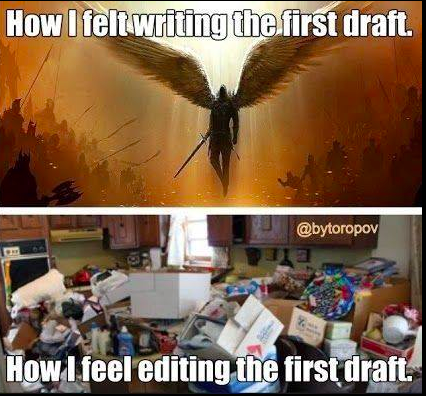
If you are ADD or ADHD and this doesn’t apply to you? Scroll past or feel free to leave your way of handling things in the comments. For me? I was a hot mess. I had a terrible habit of starting things and never finishing. Did I fail to finish because I was lazy?
Nope.
***Okay, maybe sometimes.
I failed to finish because I lacked the discipline to stay the course and I followed every single plot bunny…and their babies…and their babies’ babies.
This was HOW I ended up with my first “novel” being 187,000 word romantic-mystery-thriller-suspense-religious-comedy-self-help.
I started blogging back in 2007 (on MySpace) then blogging here in 2008 (???). The main reason I forced myself to blog was to learn to SHIP. It created a space that trained me to get butt IN chair until the work was COMPLETE.
Then LET GO.
And commit to a schedule.
Perfect is the enemy of the finished.If you are struggling to finish a novel, then maybe do a blog or do a flash fiction every day, week, whatever. Train those writing muscles. More importantly, train those finishing muscles.
For instance, I taught myself to crochet. I am NOT ALLOWED to begin anything new, until what I am working on is finished.
***Reading books? Totally doesn’t count. I usually have like 5 going at any given time.
Neurodivergent: Did I Mention Structure?
This is where we can part ways with those who are autistic (or go to war with our “autistic” side). I believe a lot of pansters likely are ADHD. We actually need to start telling the story to figure OUT the story.
To be blunt? This is a highly inefficient way to write. No shade if it works for you! If you are a panster and finishing novels faster than Mortal KOMBAT? Then don’t change. Duh.
But, if you keep getting off track, then try getting your idea at least into ONE SENTENCE.
I even have to do this with NF.
When I helped write The Trap: Sex, Social Media, and Surveillance Capitalism I HAD to write a small paragraph describing what the book was about. When writing about the dark depths of the digital adult entertainment industry, there were SO MANY tangents.
Jewels and I simply couldn’t cover them ALL in one book. We needed essentially a log-line.
Even for fiction. If you’re neurodivergent (or even if you aren’t) this is GOLD. In ONE sentence, what is your story ABOUT? Even if it is something simple like what I am doing now: My story is about a ghost ship in the derby days of crabbing.
NOT a lot of details, but if I start going down too many trails that suddenly make my story NOT about a ghost ship in the derby days of crabbing…there is a problem.
Neurodivergent to Neuro-DIVERTED: NO to the Bunnies
Again, us ADHD people see patterns and new ways of seeing and doing and thinking and, and, and, and….
STOP.
IF you are writing your novel, you can take a trick from what I do with my autism. Should you think there is a thread you need to pursue, try writing WHAT IF THEY GO X DIRECTION INSTEAD? Then let your brain sit on it.
At least try to keep moving forward. If that detour, however, does not serve the overall story you are currently working on?
Put it in a folder.Go to that blog I linked to about log-lines. See if your “plot bunny idea” might have enough meat to stand on its own. Write a log-line and maybe a little synopsis. Then when you FINISH the current idea, your bunny(ies) will be waiting…and likely breeding.
Here is how to write a synopsis, no salt circle necessary. This will keep you from smashing fifteen story ideas into ONE BOOK.
Conversely, IF you are unsure because, like I said, we often talk through/work through to FIND the story, then I highly recommend Google Docs. Break up your story with HEADINGS you can easily shift through (I think Word and Scrivener can do this too).
This will help you trim all that FAT when you get to the end.
For instance, my ghost ship story? My main character needs to be a land-lover greenhorn. So how does he end up on a boat in the Arctic circle? I literally have sections that read Probably NOT Part of Main Story but WTH, WHY NOT? Maybe I will keep it, ditch it. I don’t yet KNOW.
But the header function keeps me from having a bazillion separate documents and allows me to zip through what I already know is a hellaciously over-bloated document.
IN CONCLUSION:Neurodivergent, NOT Lazy or “a Flake“
Merely different.
The writing profession has never been easy and we now face challenges no writer in this history of PLANET EARTH has ever faced.
A.I. anyone?
We have enough odds stacked against our success without self-sabotaging. This said, before I realized “being neurodivergent” was a thing, and that I might actually BE neurodivergent? I was harder on myself than anyone.
BUT, I also gave myself slack where I shouldn’t have.
To this day, I wear a rubber band on my wrist (to lightly snap) to keep me present so I don’t talk over people. Apparently, people get annoyed when you keep finishing their sentences.
Who knew?
I know I get enthusiastic and I certainly don’t mean to be rude. But that doesn’t mean it is okay for me to be Tigger and bounce through all the conversational crockery making a mess.
Additionally, when I give my word, I strive very hard to keep it and not take on any more work. I ran an editing special back in October, then everything decided it needed to update…so it could then CRASH.
Not kidding.
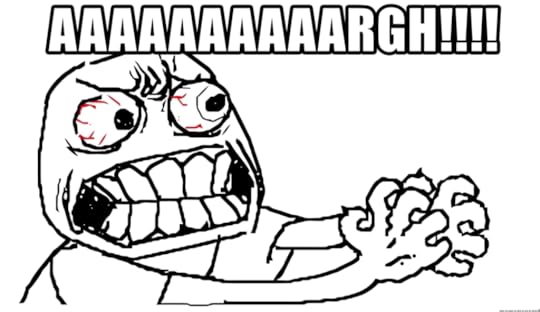
Word crashed, wiping out over 100 pages of edits. Then WP coughed up a digital hairball. Event Espresso (what I use to “sell” services) decided to toss all messages into the ABYSS and even WANATribe was 404 and took a week to fix.
Edits that normally should have been easy-peasy turned into a month-long nightmare (because of technology; the writing samples were unusually brilliant).
The old me would have just refunded the money out of sheer overwhelm.
But I’ve matured. I let people know what the tech issues were, and figured most people actually are not nearly as hard on me as I am.
Embracing Being Neurodivergent
When my mom sent me to be tested in August (I am NOT joking)…
Yes, my mother had me tested…Anyway, she asked me what I hoped to gain from an “official” diagnosis. Which, was a fair question.
I wanted to know what are called “critical nodes.” Whenever a company hires a security specialist (like, say for building a DAM in Venezuela), that specialist should point out unique areas of weakness that are inherent to the design.
For instance, if the company is aware that rebel groups might want to sabotage their dam, they don’t want to pay for security everywhere, just the most likely points of attack or system failure.
Same with being neurodivergent.Was I autistic? Or just wanting an excuse for being controlling? Or was I being over-controlling because of being autistic? Was I ADHD or just undisciplined? A combination of both?
So on and so forth.
For me, since getting a diagnosis, life is MUCH easier (mostly because I can plan and also give myself grace). I no longer feel guilty because I never wear the stunning dress I paid a fortune for, because NOW I know I’m never going wear it because of the seams and type of fabric.
***This also informs me of what to buy/not buy in the future.
Yes, I am swimming in 9,000 different hair clips (which I will donate at the beginning of the year). I kept believing I just had the wrong clip and didn’t put 2 and 2 together that it was a sensory issue.

I’m more mindful that I can be much too loud. People think I am upset or yelling at them. No, my hearing is stupid sensitive. The world (to me) is very, VERY loud.
I hear the AC cutting on and off, the computer processor humming, the traffic, the kids playing outside, the GUY WITH THE LEAF BLOWER, WHAT IS WITH THAT AND HOW IS HE EVERYWHERE?
So, to me, I am talking over a very noisy world.
Again, I use the rubber band. A quick snap on my wrist to remind me to slow down (the ADHD) and assess if the world is really that loud, or if I’m overexcited/overstimulated. Before my diagnosis, I had NO CLUE why I’d get so loud I was irritating people.
Now? I know hurdles I might encounter.A diagnosis has given me tools to better communicate. For instance, my husband likes getting everywhere at the last minute, whereas I need to be places a half hour early.
We’ve come to an agreement.
IF he wants me to sit still and be quiet, he THEN must get me there early enough to center myself and calm my anxiety (or no kicking me under the pew).
What Are Your Thoughts?We can talk on this topic again if there is any interest. I just know I felt unbelievably alone until I became a writer…then I DISCOVERED MY PEOPLE!
Trust me, I know that not every writer is ND, but I think many of us are. Additionally, I think a lot of us don’t KNOW we are ND and we beat ourselves up feeling like freaks, weirdos and failures.
I firmly stick by my theory that what can make us brilliant artists is also linked to why we struggle to finish, get/remain organized, have a hard time being able to stick-and-move and change with all the trends…
***OR we are SO good at sticking-and-moving with the trends we forget to WRITE BOOKS.
Did you relate to any of this? Maybe have a friend? A family member? Obviously I know today was a lot, but in the future I’d like to break this all into smaller pieces we can explore.
Do you see yourself in this? Or do you have something to add? I’m totally new to all this so I’m exploring ALL THE THINGS!
Are you ND, but maybe in a different way? A Tropical Fruit Salad (papaya hypoactive, mango dyscalculia, and banana ADD) instead of that North American (apple autism, walnuts OCD, and pear ADHD)?
I LOVE hearing from you! What are your stories, struggles, tips, tricks, links, epiphanies?
The post Neurodivergent Authors: Not Lazy or “Broken” appeared first on Kristen Lamb.



